Engineering
Engineer your future.
If you’re looking for an exciting career that will allow you to explore the world, but will also provide opportunities on land, a yacht engineer could offer the perfect solution. You’ll be responsible for maintaining and servicing all of the yacht’s on-board systems and engines, as well as all outgoing tenders and toys.
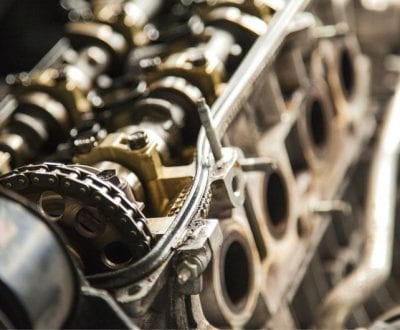

Approved Engine course 1 (AEC1)
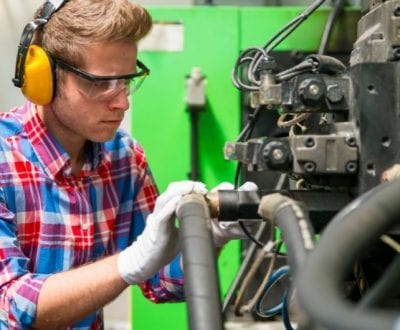
Approved Engine course 2 (AEC2)
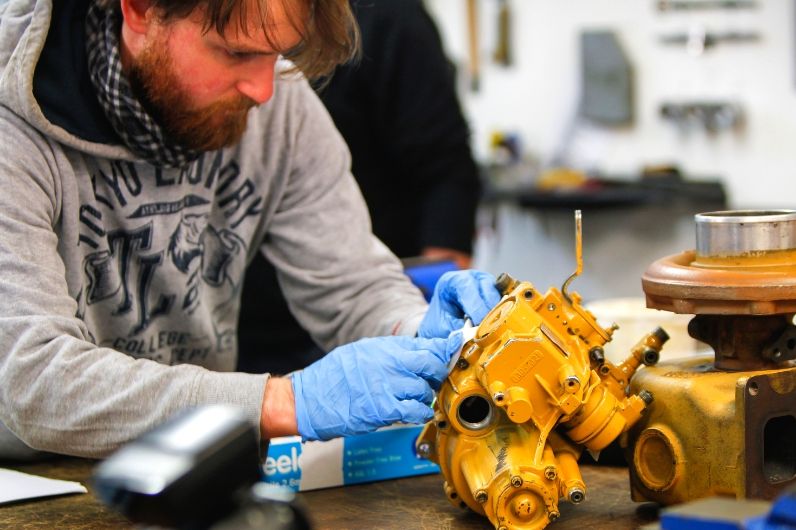
Yachting Engineering programmes
Our Yacht Engineering courses will give you the internationally recognised skills and qualifications you need to start your career as a yacht engineer, providing an understanding of engineering disciplines, as well as the hands-on skills you’ll need.
Our programmes include:
- RYA Diesel Engine Maintenance – an introduction to maintaining diesel engines and diagnosing basic faults.
- Approved Engine Course 1 (AEC1) – the next step in hands-on training and theoretical knowledge of diesel engines.
- Approved Engine Course 2 (AEC2) – leading on from the AEC1, providing practical hands on training and theoretical learning across a range of auxiliary systems.
For full details of UK requirements for engineer officers on Small Vessels please see MIN 524 (M+F).
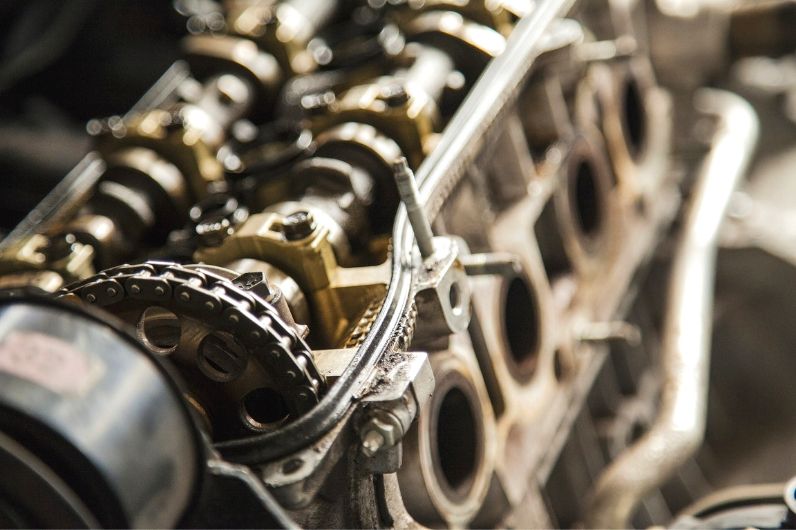
Expert yacht engineering training
Delivered by qualified yacht engineers and taught in our purpose-built training workshops, our professional Yacht Engineering courses give you the skills and knowledge you need to build an engineering career at sea.
Where can these courses take me?
Allowing you to gain the internationally recognised skills and MCA qualifications for a rewarding career as an engineering officer, we offer the courses needed to progress from an assistant engineer to a chief engineer on modern superyachts.
Alongside these specific engineering courses you may also need the STCW Basic Safety Training if you are looking for a career onboard vessels above 24 meters.
Share your #SeaChangeStories
You can share your #SeaChangeStories across social media, please email us with your story and remember to send us your photos too.
Our flexible training works around your busy schedule.
Speak to an advisor on +44 (0)1983 203001 or email us

Yacht Engineer Training Courses
MCA Superyacht / SV Engineer training for vessels up to 9000kW and 3000GT
Yacht / SV Engineer Training Overview
Although there are different training routes and licensing authorities/countries under which engineers may qualify to work on superyachts, a common, broadly accepted route is the MCA Engineer Small Vessel Training Route. The MCA recently changed its engineering qualification structure in order to simplify the number and level of qualifications across the industry. They have pulled together pre-existing qualifications, leading to certificates of competency (CoC) restricted to yachts (and other small vessels) only. This single generic qualification is now referred to as " Engineer Officer Small Vessel Certificate of Competency" .
Please consult a recognized training provider before booking any training courses and view the "Engineer Officer Small Vessel of Competency" Marine Information note, found on the MCA website.
Find info, requirements and links to yacht engineer training centres for:
- Junior / Assistant Engineer
- 2nd Engineer Officer < 9000kW
- Chief Engineer Officer < 9000kW
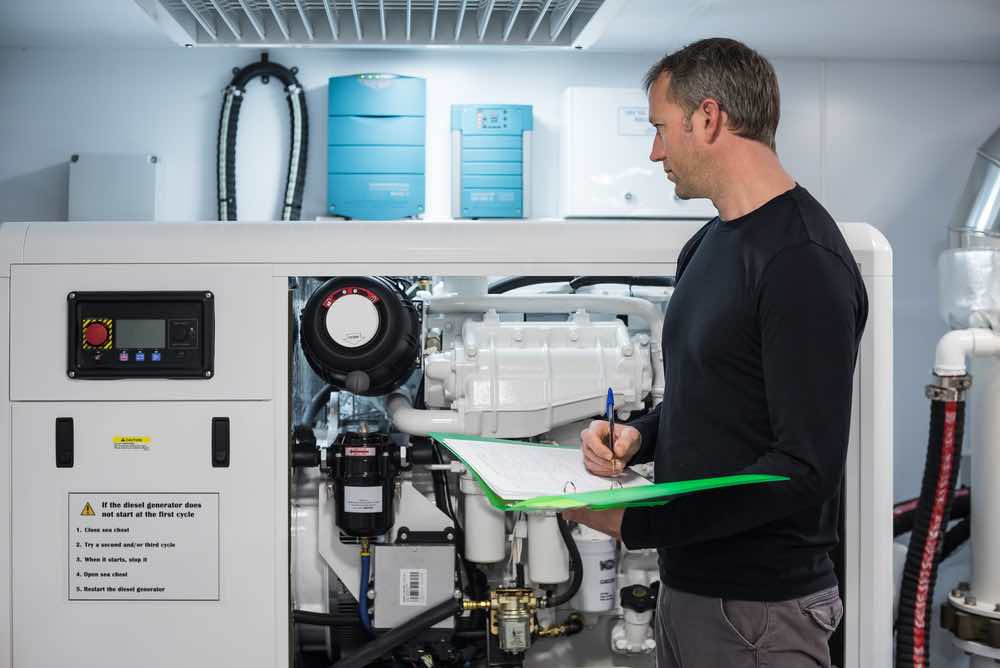
Junior / Assistant Engineer:
- An STCW : EVERY crew member onboard must hold a valid STCW
- An ENG1 Medical Certificate : EVERY crew member onboard must hold a valid ENG1
- AEC 1: The Approved Engine Course 1 is an entry-level qualification for the MCA engineering training schedule and is regarded as the first step on the ladder. It is generally a 5-day / 30-hour course that aims to provide candidates with practical basic hands-on training and theoretical knowledge of diesel engines. The main intention of this course is to teach the knowledge to serve in an ENTRY LEVEL capacity in the engineering department or for a crew member primarily working in another department to assist with engineering functions, for example, a deck/engineer. Holding an AEC certificate will allow you to be a chief engineer on a yacht over 24m and less than 200 Gross Tons or act as an assistant engineer on vessels over 200 GT up to 60NM from a safe haven.
- AEC 2: The Approved Engine Course II follows on from AEC I knowledge. It contains a more practical element when compared to the AEC I. This course has been designed so that engineering qualifications are transferable between different industry sectors such as yachts, workboats, tugs, fishing vessels and so on and there will no longer be offshore limits.
The AEC is your gateway ticket into becoming an engineer, it is, therefore, essential to hold this qualification, gain sea time and work on your training record book (TRB) in order to progress in the engine room.
Becoming a 2 nd Engineer:
There are three routes to obtaining a 2 nd Engineer Officer Small Vessel Certificate of Competency’ (Previously known as Y4):
- Standard Route
- Experienced Seafarer Route
- Alternative Route (For Graduate Engineers)
Standard Route:
This standard route benefits those who study through an accepted route of education involving MSQ (Maritime Studies Qualifications) modules. Completion of these will result in a Diploma in Maritime Studies: Small Vessel Engineer’. This route is extremely beneficial to superyacht engineers because of the reduced sea time required and because some of the syllabi can be completed on-board.
In order to follow this route, you must:
- Hold a Diploma in Maritime Studies: Small Vessel Engineer
- Complete Approved Engine Course I (AEC I) as well as The Approved Engine Course II (AEC II)
- Have completed 12 months’ combined sea service and workshop training, which must include: - 6 months’ seagoing service engaged in watchkeeping or Unmanned Machinery Space (UMS) duties on vessels of at least 350 kW; - 5 months’ seagoing service on vessels of at least 350 kW; - 2 weeks MCA-approved Initial Workshop Skills Training; - A further 2 weeks seagoing service on vessels of at least 350 kW or 2 weeks of MCA-approved additional Workshop Skills Training.
- Complete the MNTB Small Vessel Training Record Book (TRB)
- Complete the Diploma in Maritime Studies: Small Vessel Engineer
- Pass the MCA-approved written exams for - Marine Diesel Engineering ; - Auxiliary Equipment Part – 1 ; - Operational procedures, Basic Hotel Services and Ship construction
- Hold the applicable ancillary and safety courses: - All STCW Basic Training Modules - PSCRB - Advanced Fire Fighting - Proficiency in Medical First Aid - Human Element, Leadership and Management (Operational Level)
- Hold a valid ENG1 Medical Certificate or MCA accepted Equivalent
- Complete MCA oral examination for Second Engineer Officers on Small Vessels less than 9000 kW, less than 3000 GT, unlimited area, III/2 (syllabus available online, go to www.gov.uk and search “Small Vessel Oral Examination Syllabus”).
Experienced Seafarer Route:
This route is for existing seafarers serving on small vessels. You will not be required to complete the Diploma in Maritime Studies: Small Vessel Engineer , however you will need to complete a preparatory college course and SQA written examinations.
To be eligible to register for a study programme you must meet the following requirements:
- Have completed 24 months’ seagoing service on vessels of at least 200 kW
- Hold an Approved Engine Course (Both AEC 1 & AEC 2 )
- Hold STCW Basic Safety Training certificates: - Personal Survival Techniques (STCW Code A-VI/1-1) - Fire Prevention and Fire Fighting (STCW Code A-VI/1-2) - Elementary First Aid (STCW Code A-VI/1-3) - Personal Safety and Social Responsibilities (STCW Code A-VI/1-4)
Requirements / Notice Eligibility to sit MCA Oral Exam:
In addition to the above, candidates must complete the following in order to be issued with a notice of eligibility (noe) to sit an mca oral examination:.
- Additional 11 months’ seagoing on a vessel of 350 kW (must include a minimum of 6 months' seagoing service engaged in watchkeeping or UMS duties)
- 2 weeks MCA-approved initial Workshop Skills Training
- A further 2 weeks seagoing service on vessels of at least 350 kW or 2 weeks of MCA-approved additional Workshop Skills Training.
Certificate of Competency (Coc):
In addition to completing all of the experienced seafarer route requirements above, the candidate must:
- Complete and pass the following courses:
- MCA Marine Diesel Engineering
- MCA Auxiliary Equipment Part - 1
- Operational procedures, Basic Hotel Services and Ship Construction
2. Hold the applicable ancillary and safety course certificates listed in section 5:
- All STCW Basic Training Certificates - PSCRB - Advanced Fire Fighting - Proficiency in Medical First Aid - Human Element, Leadership and Management (HELM Operational Level)
3. Hold a valid ENG1 Medical or ENG1 Medical Equivalent Certificate 4. Pass the MCA oral examination for Second Engineer Officers on Small Vessels less than 9000 kW, less than 3000 GT, unlimited area, III/2 (syllabus available online, go to www.gov.uk and search “Small Vessel Oral Examination Syllabus”)
Alternative Route: (For Graduate Engineers:)
This route is for those candidates who hold a relevant engineering degree/diploma/apprenticeship. These qualifications should be sent to an MCA-approved training provider who will analyze their relevance and explain what the individual should do in order to obtain a 2 nd Engineer Officer Small Vessel CoC.
More information on the types of Graduate and Apprenticeship holders that qualify for this training route can be found in section 3.5 of the MIN 524 Notice .
If you are deemed eligible to enter into this programme you will need to apply directly to an MCA-approved nautical college. In order to find an appropriate college, search www.gov.uk for “MCA-approved nautical colleges".
In order to gain the Certificate of Competency you must:
- Complete a minimum of 6 months’ seagoing service engaged in watchkeeping duties
- Additional seagoing service / Workshop Skill training requirements based on the relevant HND, HNC or Engineering Apprenticeship, as laid out in point 3.5.3 of the MIN 534 Notice.
- Hold an Approved Engine Course I (AEC I)
- Hold an Approved Engine Course II (AEC II)
- Successfully Complete the MCA-approved modules and pass the corresponding exams for:- Marine Diesel Engineering - Auxiliary Equipment Part - 1 - Operational Procedures, Basic Hotel Services & Ship Construction
- Hold the applicable ancillary and safety course certificates:- All STCW Basic Training Certificates - PSCRB - Advanced Fire Fighting - Proficiency in Medical First Aid - Human Element, Leadership and Management (HELM Operational Level)
- Hold a valid ENG1 Medical or ENG1 Medical Equivalent Certificate
- Pass the MCA oral examination for Second Engineer Officers on Small Vessels.
Becoming a Chief Engineer :
- Chief Engineer 3000kw & <500GT
- Chief Engineer 9000kw & <3000GT
Chief Engineer Officer < 3000kW & 500GT
In order to qualify for the issue of this Certificate of Competency you must meet the following requirements:
- Complete a minimum of 6 months’ seagoing service as a Second Engineer on vessels of at least 350 kW (While holding an SV Second Engineer Officer < 9000kW & 3000GT STCW Convention regulation III/2 Certificate of Competency.
- Successfully complete the MCA- approved modules and pass the corresponding written examinations for - Chief Engineer Statutory and Operational Requirements - Auxiliary Equipment part - 2
- Hold the applicable ancillary and safety course certificates: - All STCW Basic Training Certificates - PSCRB - Advanced Fire Fighting - Proficiency in Medical First Aid - Human Element, Leadership and Management (HELM Management Level)
- Pass MCA oral examination for Chief Engineer Officer, less than 3000 kW, less than 500 GT, unlimited area, STCW Reg III/3
Chief Engineer SV <3000 GT & <9,000kW
- 24 months of seagoing service which must include:12 months as an SV Second Engineer or SV Chief Engineer while holding the applicable STCW Convention regulation III/2 Certificate of Competency:
- 6 months of sea service on 350 kW vessels & 6 months seagoing service on vessels 750 kW. (greater or equal to kW provided)
- Chief Engineer (SV) Statutory and Operational Requirements (Not required if SV Chief Engineer less than 3000 kW, less than 500 GT CoC already held)
- Chief Engineer (SV) Auxiliary Equipment Part 2 (Not required if SV Chief Engineer less than 3000 kW, less than 500 GT CoC already held)
- Applied Marine Engineering
- Complete either:a) MCA-approved modules and pass the corresponding written examinations for: General Engineering Science I & General Engineering Science II (exemptions may apply for candidates holding appropriate engineering degree) OR The Diploma in Maritime Studies: Small Vessel and the Diploma in Maritime Studies: Small Vessel Chief Engineer
- All STCW Basic Training Certificates
- Advanced Fire Fighting
- Proficiency in Medical First Aid
- Human Element, Leadership and Management (HELM Management Level)
- Pass the MCA oral examination for Chief Engineer Officer, less than 9,000 kW, less than 3,000 GT, unlimited area, STCW Reg III/3
FOR MORE INFO GO TO MCA WEBSITE MIN524
Alternative Routes to Become a Yacht Engineer:
The above method is the new MCA-approved and advised route to become a YACHT engineer, there are however other options available to you:
Experienced Marine Engineers: Marine engineers with qualifications for larger vessels, such as commercial tankers, container vessels, dredgers etc. or those with merchant navy tickets are usually able to work on yachts with these tickets. It is important to contact the MCA who will review these qualifications and ascertain a plan of action for you.
USCG: It is also possible to qualify as a yacht engineer through the United States Coast Guard route, again different flag states will have different requirements and it is advisable to contact the MCA for any further advice or information.
Find a Training Course Provider
Select a Course in order to view all training providers (use the location filter on the results page in order to refine your search).
STCW Basic Training Advanced Fire Fighting Approved Engine Course (AEC) HELM General Engineering Science 1 General Engineering Science 2 Proficiency in Medical First Aid SV Marine Diesel Engineering Proficiency in Survival Craft & Rescue Boats (PSCRB) SV Auxiliary Equipment SV Operational Procedures SV Applied Marine Engineering
Username or Email Address *
Remember me Lost your password?
Username or Email
Get New Password
- Postgraduate taught degree courses
- Postgraduate taught tuition fees
- Pre-masters for international students
- Funding your postgraduate taught studies
- How to apply for a postgraduate taught degree
- Create your own research project
- Find a PhD project
- Funding your research degree
- How to apply for a PhD or research degree
- How to make a PhD enquiry
- Support while studying your PhD or research degree
- Undergraduate degree courses
- Foundation year programmes
- Undergraduate tuition fees
- Customise your degree
- Funding undergraduate studies
- How to apply
- Choose your halls of residence
- Apply for accommodation
- Guaranteed accommodation
- Your accommodation options
- International and pre-sessional students
- Postgraduate accommodation
- Couples and students with children
- Renting privately
- Our accommodation areas
- Privacy notice
- Terms and conditions
- Fees and contracts
- Southampton
- Sports facilities
- Sports clubs
- Watersports centres
- Avenue Campus
- Boldrewood Innovation Campus
- City Centre Campus
- Highfield Campus
- University Hospital Southampton
- Waterfront Campus
- Winchester Campus
- What's on
- Clubs and societies
- Sports teams
- SUSU places
- Representing you
- SUSU support and advice
- Living costs
- Academic and mental health support
- Support for disabled students
- Part-time work
- Health services
Maritime Engineering Science: Yacht and High-performance Craft (MSc)
Maritime Engineering Science: Yacht and High-performance Craft (MSc) starting September 2024 for 1 year
About this course
On this Yacht and High-performance Craft engineering MSc degree you’ll specialise in the analysis, design and performance of yachts, small craft and high-performance vessels. You’ll also gain an understanding of the fixed and offshore structures that help them to function. You'll graduate with the specialist skills in maritime engineering science to design and analyse marine craft and structures.
This Maritime Engineering Science: Yacht and High-performance Craft MSc is one of 5 maritime engineering science specialisms you can study at the University of Southampton.
This master's degree covers the core subjects and in-depth knowledge of maritime engineering science for both design and analysis of marine craft and structures within the marine environment.
If you have a first degree in engineering, science or maths and are looking for a career in the maritime sector and yacht design degree to study, this could be the course for you. We'll also consider you if you have relevant experience. You don’t need specialist knowledge of the subject, as we’ll teach you the fundamentals of ship science.
Specialist yacht engineering modules on this MSc programme, will give you a chance to explore the performance and design of a variety of high-performance small craft including:
- planing craft
- sailing yachts
- hydrofoils
- hovercraft
You'll discover how to calculate a vessel's performance as you learn about common types of full-scale trials. You’ll gain key skills in areas like force balance, drag breakdowns, resistance approximations and stability.
Through design-oriented work, you’ll find out how the basic mechanics in each case are applied – first through simplified scenarios and then through more complex engineering design.
We regularly review our courses to ensure and improve quality. This course may be revised as a result of this. Any revision will be balanced against the requirement that the student should receive the educational service expected. Find out why, when, and how we might make changes .
Our courses are regulated in England by the Office for Students (OfS).
Course lead
Your course leader is Dr Gabriel Weymouth, an associate professor for the Southampton Marine and Maritime Institute at the University of Southampton. His main areas of interest are mechanics and maths. He is currently working on unsteady fluid dynamics and nonlinear fluid/structure interaction. Read Dr Weymouth’s staff profile to find out more about his work.
Related pathways
If you'd prefer to study a different specialism, you can apply for one of our other MSc Maritime Engineering Science pathways:
- Advanced Computational Engineering
- Marine Engineering and Autonomy
- Naval Architecture
- Ocean Energy and Offshore Engineering
Accreditations
This master's programme is accredited by the Institution of Mechanical Engineers (IMechE), the Royal Institution of Naval Architects (RINA) and the Institute of Marine Engineering, Science and Technology (IMarEST) as meeting the academic requirement for Further Learning, for Chartered Engineer and Chartered Marine Engineer registration. Candidates must hold a BEng/BSc undergraduate first degree that is accredited for Chartered Engineer (CEng) registration to comply with full CEng registration requirements.
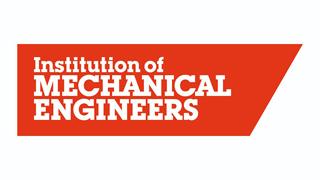
Institution of Mechanical Engineers (IMechE)
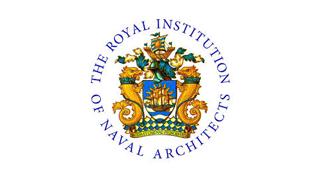
Royal Institution of Naval Architects (RINA)
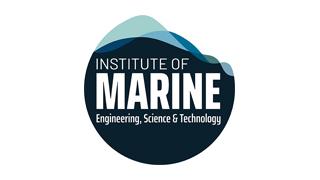
Institute of Marine Engineering, Science and Technology (IMarEST)
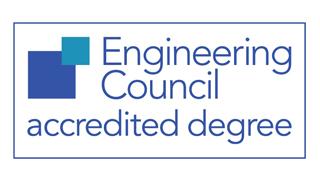
Engineering Council
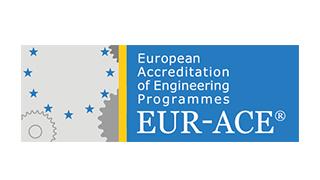
European Accreditation of Engineering Programmes (EAEP)
Using the towing tank in your ship science degree, learn more about this subject area.
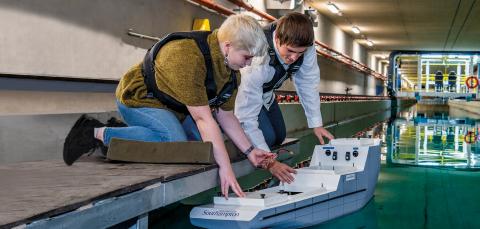
- Maritime engineering
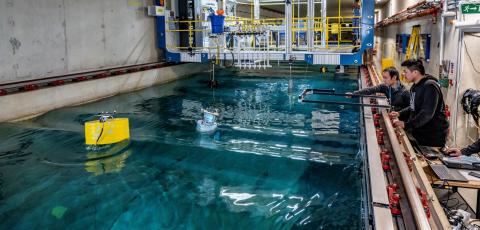
Towing tank
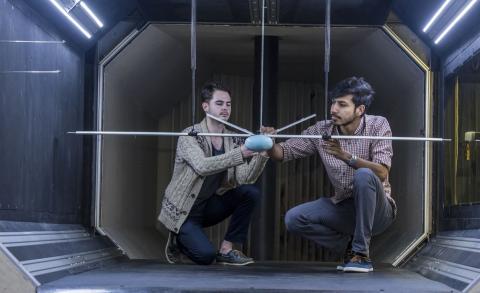
Wind tunnels
Course location.
This course is based at Boldrewood .
Awarding body
This qualification is awarded by the University of Southampton.
Download the Course Description Document
The Course Description Document details your course overview, your course structure and how your course is taught and assessed.
Entry requirements
You’ll need a 2:1 degree in:
- marine engineering
- naval architecture
- ship science
- aerospace engineering
- mechanical engineering
- general engineering
- electrical engineering
- physics
- maths
We may also consider applicants with undergraduate degrees in oceanography or architecture, or applicants from marine academies. Find the equivalent international qualifications for your country.
English language requirements
If English isn't your first language, you'll need to complete an International English Language Testing System (IELTS) to demonstrate your competence in English. You'll need all of the following scores as a minimum:
IELTS score requirements
We accept other English language tests. Find out which English language tests we accept.
Pre-masters
If you don’t meet the English language requirements, you can achieve the level you need by completing a pre-sessional English programme before you start your course.
If you don’t meet the academic requirements, you can complete a pre-master's programme through our partnership with ONCAMPUS. Learn more about the programmes available .
Recognition of professional experience
If you don't have the exact entry requirements, but you have significant work experience in this sector we’ll assess your relevant professional experience, your subject knowledge and your aptitude for learning.
Your application will be considered on individual merit and you may be asked to attend an interview.
Got a question?
Please contact us if you're not sure you have the right experience or qualifications to get onto this course.
Email: [email protected] Tel: +44(0)23 8059 5000
Course structure
This is a full-time master’s course studied over 12 months.
In the first 8 months (semesters 1 and 2) you'll study the taught part of your course.
This is made up of modules that everyone on the course takes, and modules we’ll ask you to choose from a list of options.
For the last 4 months, over the summer, you’ll work independently to research and write your dissertation. You’ll have one-to-one meetings with your supervisor during this time to discuss your progress. You’ll carry out an experimental or numerical research project, and benefit from our Southampton Marine and Maritime Institute (SMMI) research network and our world-class maritime engineering facilities , including the largest towing tank in any UK university.
Want more detail? See all the modules in the course.
The modules outlined provide examples of what you can expect to learn on this degree course based on recent academic teaching. As a research-led University, we undertake a continuous review of our course to ensure quality enhancement and to manage our resources. The precise modules available to you in future years may vary depending on staff availability and research interests, new topics of study, timetabling and student demand. Find out why, when and how we might make changes .
Year 1 modules
You must study the following modules :
Composites Engineering Design and Mechanics
This module provides an in depth coverage of the mechanics of fibre-reinforced polymer materials and structures. The core of the course encompass modelling of the 2D orthotropic lamina reduced from 3D continuum mechanics for anisotropic solids, classical ...
Fundamentals of Maritime Engineering
This fundamentals module is aimed primarily for the MSc students in Maritime Engineering Science and students on the MECH/Navel Engineering programmes. It provides them with the essential knowledge of Maritime Engineering required for their subsequent stu...
MSc Research Project
Within the context of your programme of study, students will undertake independent, original and critical research on a relevant topic. Students will then communicate the research objectives, methodology, analysis, results and conclusions effectively both...
Maritime Safety: Risk, Environment and Law
In view of the Engineering Council’s support for the development of engineering degrees that will equip students to become professional engineers, the module follows the European Network for Engineering Accreditation guidelines to contribute to graduate a...
Sailing Yacht and Powercraft Design
This module takes a practical approach primarily through assignment/project lead application of concepts of yacht design, applicable to both powered and sailing craft. Four assignments in areas of initial design, hull design, sailplan and rig development ...
Yacht and High Performance Craft
This module covers the performance and design of a variety of high performance small craft: namely semi-displacement, planing craft and catamarans as well as sailing yachts, hydrofoils and hovercraft. It will examine the basic mechanics and fluid dynamics...
You must also choose from the following modules :
Applications of CFD
The basic concept of Computational Fluid Dynamics and numerical procedures (FVM/FDM) are introduced. The major focus is practical applications, including geometry and grid generation, using solvers and turbulence models in CFD packages, and interpretation...
Design Search and Optimisation (DSO) - Principles, Methods, Parameterizations and Case Studies
This module introduces students to formal design search and optimization (DSO) approaches using a mixture of lectures covering theory and practice and a series of worked case studies with student participation.
Failure of Materials and Components
In this module, the emphasis moves away from alloy development and design, and focuses on the performance of structural materials in a range of engineering applications. The lectures draw on examples from applications of ceramics, steel, Al, Ti and Ni bas...
Finite Element Analysis in Solid Mechanics
Many real-world engineering structures are too complex for their behaviour to be understood using an ‘exact’ analytical or theoretical method alone. Therefore, in practice we often use approximate numerical or simulation-based tools for structural analysi...
Marine Hydrodynamics
This module extends the fundamentals of fluid mechanics in the context of naval architecture and ocean engineering including water waves and the fluid loading and motion of maritime structures and vessels in waves. Students will assess the concepts of add...
Marine Structures
This module extends the structural analysis principles to marine structural design and assessment, building on the fundamentals established in the previous “materials and structures” and “ship structural design and production” courses. Students will asses...
Maritime Robotics
This module introduces the theoretical and practical design of maritime robotics systems such as autonomous underwater and surface vehicles (AUVs, ASVs). Students will be introduced to the theoretical principles underlying their design including aspect...
Zero Carbon Ship Resistance and Propulsion
Maximising the propulsive efficiency of ships is key to their economic effectiveness and in minimising their emissions of CO2, NOx and SOx. Advances in ship performance require a detailed understanding of the fluid dynamic mechanisms which control the flo...
Learning and assessment
The learning activities for this course include:
- lectures
- classes and tutorials
- coursework
- individual and group projects
- independent learning (studying on your own)
We’ll assess you through:
- coursework, laboratory reports and essays
- a dissertation
- essays
- group essays
- written exams
Dissertation
You’ll carry out an original piece of research, resulting in a dissertation, on a subject of your choice (to be agreed with your supervisor).
The project is a chance for you to develop your research skills and show in-depth knowledge of your chosen subject.
Academic Support
You’ll be assigned a personal academic tutor and have access to a senior tutor.
The maritime sector provides varied career opportunities in engineering and project management related roles. Maritime engineering science graduates are in strong demand with good starting salaries and excellent career progression opportunities. Our graduates work across many different organisations. The Solent region around Southampton is the main UK hub for the maritime sector with organisations such as:
- Lloyd’s Register
- Carnival
- Nigel Gee
- the Maritime and Coastguard Agency
Organisations such BAE Systems, QinetiQ and Babcock support the defence sector and employ a number of our graduates. The offshore and marine renewable developments are offering excellent prospects both to work in the UK (locally, London or Aberdeen) or worldwide in places such as Singapore, Houston or Perth.
Careers services at Southampton
We're a top 20 UK university for employability (QS Graduate Employability Rankings 2022). Our Careers, Employability and Student Enterprise team will support you throughout your time as a student and for up to 5 years after graduation. This support includes:
- work experience schemes
- CV/resume and interview skills workshops
- networking events
- careers fairs attended by top employers
- a wealth of volunteering opportunities
- study abroad and summer school opportunities
We have a thriving entrepreneurship culture. You'll be able to take advantage of:
- our dedicated start-up incubator, Futureworlds
- a wide variety of enterprise events run throughout the year
- our partnership in the world’s number 1 business incubator, SETsquared
Fees, costs and funding
Tuition fees.
Fees for a year's study:
- UK students pay £9,250.
- EU and international students pay £30,000.
Check fees for other versions of this course .
If you're an international student on a full-time course, we'll ask you to pay £2,000 of your tuition fees in advance, as a deposit.
Your offer letter will tell you when this should be paid and provide full terms and conditions.
Find out about exemptions, refunds and how to pay your deposit on our tuition fees for overseas students page.
What your fees pay for
Your tuition fee covers the full cost of tuition and any exams.
Find out how to pay your tuition fees .
Accommodation and living costs, such as travel and food, are not included in your tuition fees. Explore:
- accommodation costs
- living costs
- budgeting advice
10% alumni discount
If you’re a graduate of the University of Southampton, you could be eligible for a 10% discount on your postgraduate tuition fees.
Postgraduate Master’s Loans (UK nationals only)
This can help with course fees and living costs while you study a postgraduate master's course. Find out if you're eligible .
Southampton Engineering Deans Postgraduate International Scholarship
A scholarship of £5,000 is available to international students studying for a postgraduate master’s in Engineering.
Find out more about the Southampton Engineering Deans International Scholarship , including eligibility and conditions.
Other postgraduate funding options
A variety of additional funding options may be available to help you pay for your master’s study. Both from the University and other organisations.
Funding for EU and international students
Find out about funding you could get as an international student.
- Use the 'apply for this course' button on this page to take you to our online application form.
- Search for the course you want to apply for.
- Complete the application form and upload any supporting documents.
- Submit your application.
For further details, read our step by step guide to postgraduate taught applications .
Application deadlines
Uk students.
The deadline to apply for this course is Wednesday 3 July 2024 - midday UK time.
We advise applying early as applications may close before the expected deadline if places are filled.
- International students
Application assessment fee
We’ll ask you to pay a £50 application assessment fee if you’re applying for a postgraduate taught course.
This is an extra one-off charge which is separate to your tuition fees and is payable per application. It covers the work and time it takes us to assess your application. You’ll be prompted to pay when you submit your application which won’t progress until you've paid.
If you're a current or former University of Southampton student, or if you’re applying for certain scholarships, you will not need to pay the fee. PGCE applications through GOV.UK and Master of Research (MRes) degree applications are also exempt. Find out if you’re exempt on our terms and conditions page .
Supporting information
When you apply you’ll need to submit a personal statement explaining why you want to take the course.
You’ll need to include information about:
- your knowledge of the subject area
- why you want to study a postgraduate qualification in this course
- how you intend to use your qualification
References are not required for this programme.
Please include the required paperwork showing your first degree and your IELTS English language test score (if you are a non-native English speaker) with your application. Without these, your application may be delayed.
What happens after you apply
You'll be able to track your application through our online Applicant Record System.
We will aim to send you a decision 6 weeks after you have submitted your application.
If we offer you a place, you will need to accept the offer within 30 working days. If you do not meet this deadline, we will offer your place to another applicant.
Unfortunately, due to number of applications we receive, we may not be able to give you specific feedback on your application if you are unsuccessful.
Equality and diversity
We treat and select everyone in line with our Equality and Diversity Statement .
Related courses
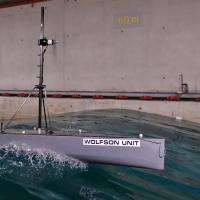
Maritime Engineering Science: Advanced Computational Engineering
Maritime engineering science: marine engineering and autonomy, maritime engineering science: naval architecture, maritime engineering science: ocean energy & offshore engineering.
- View all courses
- Pre-sessional English courses
- Course modules
- Acoustical engineering
- Biomedical and medical engineering
- Civil engineering
- Every day I’m completely immersed in an environment that’s creative in all aspects
- Everything I learn feels so relevant, even If it’s a subject rooted in the past
- Photonics and optoelectronics
- Social statistics and demography
- A missing link between continental shelves and the deep sea: Have we underestimated the importance of land-detached canyons?
- A seismic study of the continent-ocean transition southwest of the UK
- A study of rolling contact fatigue in electric vehicles (EVs)
- Acoustic monitoring of forest exploitation to establish community perspectives of sustainable hunting
- Acoustic sensing and characterisation of soil organic matter
- Advancing intersectional geographies of diaspora-led development in times of multiple crises
- Aero engine fan wake turbulence – Simulation and wind tunnel experiments
- Against Climate Change (DACC): improving the estimates of forest fire smoke emissions
- All-in-one Mars in-situ resource utilisation (ISRU) system and life-supporting using non-thermal plasma
- An electromagnetic study of the continent-ocean transition southwest of the UK
- An investigation of the relationship between health, home and law in the context of poor and precarious housing, and complex and advanced illness
- Antibiotic resistance genes in chalk streams
- Being autistic in care: Understanding differences in care experiences including breakdowns in placements for autistic and non-autistic children
- Biogeochemical cycling in the critical coastal zone: Developing novel methods to make reliable measurements of geochemical fluxes in permeable sediments
- Bloom and bust: seasonal cycles of phytoplankton and carbon flux
- British Black Lives Matter: The emergence of a modern civil rights movement
- Building physics for low carbon comfort using artificial intelligence
- Building-resolved large-eddy simulations of wind and dispersion over a city scale urban area
- Business studies and management: accounting
- Business studies and management: banking and finance
- Business studies and management: decision analytics and risk
- Business studies and management: digital and data driven marketing
- Business studies and management: human resources (HR) management and organisational behaviour
- Business studies and management: strategy, innovation and entrepreneurship
- Carbon storage in reactive rock systems: determining the coupling of geo-chemo-mechanical processes in reactive transport
- Cascading hazards from the largest volcanic eruption in over a century: What happened when Hunga Tonga-Hunga Ha’apai erupted in January 2022?
- Characterisation of cast austenitic stainless steels using ultrasonic backscatter and artificial intelligence
- Climate Change effects on the developmental physiology of the small-spotted catshark
- Climate at the time of the Human settlement of the Eastern Pacific
- Collaborative privacy in data marketplaces
- Compatibility of climate and biodiversity targets under future land use change
- Cost of living in modern and fossil animals
- Creative clusters in rural, coastal and post-industrial towns
- Deep oceanic convection: the outsized role of small-scale processes
- Defect categories and their realisation in supersymmetric gauge theory
- Defining the Marine Fisheries-Energy-Environment Nexus: Learning from shocks to enhance natural resource resilience
- Design and fabrication of next generation optical fibres
- Developing a practical application of unmanned aerial vehicle technologies for conservation research and monitoring of endangered wildlife
- Development and evolution of animal biomineral skeletons
- Development of all-in-one in-situ resource utilisation system for crewed Mars exploration missions
- Ecological role of offshore artificial structures
- Effect of embankment and subgrade weathering on railway track performance
- Efficient ‘whole-life’ anchoring systems for offshore floating renewables
- Electrochemical sensing of the sea surface microlayer
- Engagement with nature among children from minority ethnic backgrounds
- Enhancing UAV manoeuvres and control using distributed sensor arrays
- Ensuring the Safety and Security of Autonomous Cyber-Physical Systems
- Environmental and genetic determinants of Brassica crop damage by the agricultural pest Diamondback moth
- Estimating marine mammal abundance and distribution from passive acoustic and biotelemetry data
- Evolution of symbiosis in a warmer world
- Examining evolutionary loss of calcification in coccolithophores
- Explainable AI (XAI) for health
- Explaining process, pattern and dynamics of marine predator hotspots in the Southern Ocean
- Exploring dynamics of natural capital in coastal barrier systems
- Exploring the mechanisms of microplastics incorporation and their influence on the functioning of coral holobionts
- Exploring the potential electrical activity of gut for healthcare and wellbeing
- Exploring the trans-local nature of cultural scene
- Facilitating forest restoration sustainability of tropical swidden agriculture
- Faulting, fluids and geohazards within subduction zone forearcs
- Faulting, magmatism and fluid flow during volcanic rifting in East Africa
- Fingerprinting environmental releases from nuclear facilities
- Flexible hybrid thermoelectric materials for wearable energy harvesting
- Floating hydrokinetic power converter
- Glacial sedimentology associated subglacial hydrology
- Green and sustainable Internet of Things
- How do antimicrobial peptides alter T cell cytokine production?
- How do calcifying marine organisms grow? Determining the role of non-classical precipitation processes in biogenic marine calcite formation
- How do neutrophils alter T cell metabolism?
- How well can we predict future changes in biodiversity using machine learning?
- Hydrant dynamics for acoustic leak detection in water pipes
- If ‘Black Lives Matter’, do ‘Asian Lives Matter’ too? Impact trajectories of organisation activism on wellbeing of ethnic minority communities
- Illuminating luciferin bioluminescence in dinoflagellates
- Imaging quantum materials with an XFEL
- Impact of neuromodulating drugs on gut microbiome homeostasis
- Impact of pharmaceuticals in the marine environment in a changing world
- Impacts of environmental change on coastal habitat restoration
- Improving subsea navigation using environment observations for long term autonomy
- Information theoretic methods for sensor management
- Installation effect on the noise of small high speed fans
- Integrated earth observation mapping change land sea
- Interconnections of past greenhouse climates
- Investigating IgG cell depletion mechanisms
- Is ocean mixing upside down? How mixing processes drive upwelling in a deep-ocean basin
- Landing gear aerodynamics and aeroacoustics
- Lightweight gas storage: real-world strategies for the hydrogen economy
- Long-term change in the benthos – creating robust data from varying camera systems
- Machine learning for multi-robot perception
- Marine ecosystem responses to past climate change and its oceanographic impacts
- Mechanical effects in the surf zone - in situ electrochemical sensing
- Microfluidic cell isolation systems for sepsis
- Migrant entrepreneurship, gender and generation: context and family dynamics in small town Britain
- Miniaturisation in fishes: evolutionary and ecological perspectives
- Modelling high-power fibre laser and amplifier stability
- Modelling soil dewatering and recharge for cost-effective and climate resilient infrastructure
- Modelling the evolution of adaptive responses to climate change across spatial landscapes
- Nanomaterials sensors for biomedicine and/or the environment
- New high-resolution observations of ocean surface current and winds from innovative airborne and satellite measurements
- New perspectives on ocean photosynthesis
- Novel methods of detecting carbon cycling pathways in lakes and their impact on ecosystem change
- Novel technologies for cyber-physical security
- Novel transparent conducting films with unusual optoelectronic properties
- Novel wavelength fibre lasers for industrial applications
- Ocean circulation and the Southern Ocean carbon sink
- Ocean influence on recent climate extremes
- Ocean methane sensing using novel surface plasmon resonance technology
- Ocean physics and ecology: can robots disentangle the mix?
- Ocean-based Carbon Dioxide Removal: Assessing the utility of coastal enhanced weathering
- Offshore renewable energy (ORE) foundations on rock seabeds: advancing design through analogue testing and modelling
- Optical fibre sensing for acoustic leak detection in buried pipelines
- Optimal energy transfer in nonlinear systems
- Optimizing machine learning for embedded systems
- Oxidation of fossil organic matter as a source of atmospheric CO2
- Partnership dissolution and re-formation in later life among individuals from minority ethnic communities in the UK
- Personalized multimodal human-robot interactions
- Preventing disease by enhancing the cleaning power of domestic water taps using sound
- Quantifying riparian vegetation dynamics and flow interactions for Nature Based Solutions using novel environmental sensing techniques
- Quantifying the response and sensitivity of tropical forest carbon sinks to various drivers
- Quantifying variability in phytoplankton electron requirements for carbon fixation
- Resilient and sustainable steel-framed building structures
- Resolving Antarctic meltwater events in Southern Ocean marine sediments and exploring their significance using climate models
- Robust acoustic leak detection in water pipes using contact sound guides
- Silicon synapses for artificial intelligence hardware
- Smart photon delivery via reconfigurable optical fibres
- The Gulf Stream control of the North Atlantic carbon sink
- The Mayflower Studentship: a prestigious fully funded PhD studentship in bioscience
- The calming effect of group living in social fishes
- The duration of ridge flank hydrothermal exchange and its role in global biogeochemical cycles
- The evolution of symmetry in echinoderms
- The impact of early life stress on neuronal enhancer function
- The oceanic fingerprints on changing monsoons over South and Southeast Asia
- The role of iron in nitrogen fixation and photosynthesis in changing polar oceans
- The role of singlet oxygen signaling in plant responses to heat and drought stress
- Time variability on turbulent mixing of heat around melting ice in the West Antarctic
- Triggers and Feedbacks of Climate Tipping Points
- Uncovering the drivers of non-alcoholic fatty liver disease progression using patient derived organoids
- Understanding recent land-use change in Snowdonia to plan a sustainable future for uplands: integrating palaeoecology and conservation practice
- Understanding the role of cell motility in resource acquisition by marine phytoplankton
- Understanding the structure and engagement of personal networks that support older people with complex care needs in marginalised communities and their ability to adapt to increasingly ‘digitalised’ health and social care
- Unpicking the Anthropocene in the Hawaiian Archipelago
- Unraveling oceanic multi-element cycles using single cell ionomics
- Unravelling southwest Indian Ocean biological productivity and physics: a machine learning approach
- Using acoustics to monitor how small cracks develop into bursts in pipelines
- Using machine learning to improve predictions of ocean carbon storage by marine life
- Vulnerability of low-lying coastal transportation networks to natural hazards
- Wideband fibre optical parametric amplifiers for Space Division Multiplexing technology
- Will it stick? Exploring the role of turbulence and biological glues on ocean carbon storage
- X-ray imaging and property characterisation of porous materials
- Exchanges and studying abroad
- Postgraduate Taught Diversity Scholarship (Environmental and Life Sciences)
- Southampton Business School Postgraduate UK Scholarship
- Southampton Genomics Talent Scholarship
- Southampton History Patricia Mather and Helen Patterson Scholarship
- Southampton MA Holocaust scholarships
- Southampton Philosophy David Humphris-Norman Scholarship
- Southampton Physics and Astronomy Achievement Scholarship
- GREAT Scholarships 2024 – Greece
- Undergraduate scholarships for UK students
- Winchester School of Art Postgraduate Global Talent Scholarship
- Southampton University Corporate Civil Engineering Scholarship Scheme
- Merit scholarships for international postgraduates
- Merit scholarships for international undergraduates
- Scholarships, awards and funding opportunities
- Becas Chile Scholarship
- Chevening Scholarships
- China Scholarship Council Scholarships
- COLFUTURO Scholarships
- Commonwealth Distance Learning Scholarships
- Commonwealth Master's Scholarships
- Commonwealth PhD Scholarships
- Commonwealth PhD Scholarships for high income countries
- Commonwealth Shared Scholarships
- Commonwealth Split-Site Scholarships
- FIDERH Scholarships
- Fulbright Awards
- FUNED Scholarships
- Great Scholarships 2024 – India
- Great Scholarships 2024 – Bangladesh
- Great Scholarships 2024 – Mexico
- Great Scholarships 2024 – Nigeria
- Marshall Scholarship
- Saïd Foundation Scholarships
- British Council Scholarships for Women in STEM
- Xiamen University PhD Scholarships
- GREAT scholarships for justice and law 2024 – Indonesia
- Scholarship terms and conditions
- Southampton Canadian Prestige Scholarship for Law
- Southampton Presidential International Scholarship
- Continuing professional development
- Lunchtime evening and weekend courses
- Summer schools
- Get a prospectus
- Archers Road
- City Gateway
- Erasmus Park
- Highfield Hall
- Orion Point
- Wessex Lane
- Research projects
- Research areas
- Geotechnical Centrifuge
- Maritime Robotics and Instrumentation Laboratory (MRIL)
- Collaborate with us
- Active Living
- Advanced Fibre Applications
- Advanced Laser Laboratory
- Advanced Project Management Research Centre
- Antibody and Vaccine Group
- Astronomy Group
- Autism Community Research Network @ Southampton (ACoRNS)
- Bioarchaeology and Osteoarchaeology at Southampton (BOS)
- Bladder and Bowel Management
- Cell and Developmental Biology
- Centre for Defence and Security Research
- Centre for Developmental Origins of Health and Disease
- Centre for Digital Finance
- Centre for Eastern European and Eurasian Studies (CEEES)
- Centre for Empirical Research in Finance and Banking (CERFIB)
- Centre for Geometry, Topology, and Applications
- Centre for Global Englishes
- Centre for Global Health and Policy (GHaP)
- Centre for Health Technologies
- Centre for Healthcare Analytics
- Centre for Human Development, Stem Cells and Regeneration
- Centre for Imperial and Postcolonial Studies
- Centre for Inclusive and Sustainable Entrepreneurship and Innovation (CISEI)
- Centre for International Film Research (CIFR)
- Centre for International Law and Globalisation
- Centre for Internet of Things and Pervasive Systems
- Centre for Justice Studies
- Centre for Linguistics, Language Education and Acquisition Research
- Centre for Machine Intelligence
- Centre for Maritime Archaeology
- Centre for Medieval and Renaissance Culture (CMRC)
- Centre for Modern and Contemporary Writing (CMCW)
- Centre for Music Education and Social Justice
- Centre for Political Ethnography (CPE)
- Centre for Research in Accounting, Accountability and Governance
- Centre for Research on Work and Organisations
- Centre for Resilient Socio-Technical Systems
- Centre for Transnational Studies
- Child and Adolescent Research Group
- Clinical Ethics, Law and Society (CELS)
- Computational Nonlinear Optics
- Cyber Security Academy
- Data Science Group
- Digital Oceans
- EPSRC and MOD Centre for Doctoral Training in Complex Integrated Systems for Defence and Security
- Economic Theory and Experimental Economics
- Economy, Society and Governance
- Electrical Power Engineering
- Environmental Hydraulics
- Gas Photonics in Hollow Core Fibres
- Geochemistry
- Global Health (Demography)
- Global Health Community of Practice
- Gravity group
- Healthy Oceans
- High Power Fibre Lasers
- Hollow Core Fibre
- Human Genetics and Genomic Medicine
- Infrastructure Group
- Institute of Maritime Law (IML)
- Integrated Photonic Devices
- Integrative Molecular Phenotyping Centre
- Interdisciplinary Musculoskeletal Health
- International Centre for Ecohydraulics Research (ICER)
- Language Assessment and Testing Unit (LATU)
- Laser-Direct-Write (LDW) Technologies for Biomedical Applications
- Law and Technology Centre
- Long Term Conditions
- Magnetic Resonance
- Mathematical Modelling
- Medicines Management
- Molecular and Precision Biosciences
- Multiwavelength Accretion and Astronomical Transients
- National Biofilms Innovation Centre (NBIC)
- National Centre for Research Methods
- National Infrastructure Laboratory
- Nature-Based Ocean Solutions
- Nonlinear Semiconductor Photonics
- Ocean Perception Group
- Operational Research
- Optical Engineering and Quantum Photonics Group
- Paediatrics and Child Health - Clinical and Experimental Sciences
- People, Property, Community
- Photonic Systems, Circuits and Sensors Group
- Physical Optics
- Primary Care Research Centre
- Product Returns Research Group (PRRG)
- Quantum, Light and Matter Group
- Silica Fibre Fabrication
- Silicon Photonics
- Skin Sensing Research Group
- Southampton Centre for Nineteenth-Century Research
- Southampton Ethics Centre
- Southampton Health Technology Assessments Centre (SHTAC)
- Southampton High Energy Physics group
- Southampton Imaging
- Southampton Theory Astrophysics and Gravity (STAG) Research Centre
- Stefan Cross Centre for Women, Equality and Law
- String theory and holography
- The India Centre for Inclusive Growth and Sustainable Development
- The Parkes Institute
- Tony Davies High Voltage Laboratory
- Ultrafast X-ray Group
- Vision Science
- Work Futures Research Centre (WFRC)
- Support for researchers
- Faculties, schools and departments
- Research jobs
- Find people and expertise
- Why work with us?
- Collaboration
- Consultancy
- Commercialisation
- Use our facilities
- Connect with our students
- How we operate
- Make a business enquiry
- International Office
- Partnerships and initiatives
- Visiting delegations
- Visiting fellowships
- Departments

The Quick and Easy Guide to Superyacht Engineering Careers
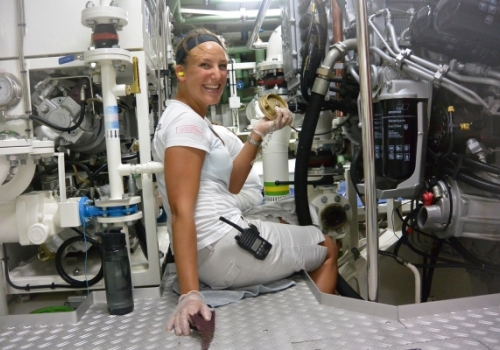
Following on from our guides on superyacht deck and interior careers, it’s time to get our technical hats on and lay out the career pathways for engineering, whether you’re transitioning from another sector or gunning for a chief engineer role.
As always, to keep us on track with the latest training requirements for superyacht engineers, we follow guidance from the experts at the careers guidance platform, Academy by Ephemeris .
What does a superyacht engineer do?
The role of a superyacht engineer varies depending on the size, type and usage of the yacht, and you might be working as a sole engineer, or as part of a team of six or more.
On smaller yachts you will be responsible for the operation, maintenance and repair of all mechanical, electronic, electric, hydraulic, pneumatic systems, and in some instances, also the structural systems and appendages on board.
Notably, on larger yachts there is usually a separation of function between the engineer and the electro-technical officer (ETO) who is responsible for the day-to-day maintenance and operation of all electronic, electrical, communications and audio-visual equipment. This could include radio, radar, telephones, satellite communications (including internet), navigation systems, email servers, TV, sound systems, and security equipment. We will cover how to get ahead on the superyacht ETO careers pathway in our next article.
How do I become a superyacht engineer?
There are two common routes for becoming a superyacht engineer. Firstly, you can enroll in the courses set out by the Maritime and Coastguard Agency (MCA) and work your way through them from the bottom up. These include the Approved Engine Course (AEC), the Marine Engine Operator License (MEOL), and the Yacht 4, 3, 2 and 1 qualifications (with Yacht 4 being the lowest of the four).
Before taking on the Yacht 4 qualification, candidates must already have the MEOL and AEC certificates, or hold an eligible amount of previous experience in another sector first, after which they can progress through the other levels. This is the ideal route if you are totally new to the industry and don’t yet have any practical experience.
The second route to becoming a superyacht engineer involves gaining a relevant qualification, such as a degree in maritime, aerospace or mechanical engineering, before embarking on your yachting career.
The advantage of this option is that you will have a degree under your belt if you decide to change careers later in life. The disadvantage is that it takes longer and will not necessarily offer you any shortcuts in your training to become a superyacht engineer.
What if I already have relevant experience?
If you already have a large amount of sea-service banked, non-yachting certificates or other relevant employment experience, you can apply to the MCA for a Letter of Initial Assessment.
The MCA will then assess the level at which you can enter the yachting certification process, so you can enroll for the relevant engineering courses, oral exams and ancillary courses to progress in your career.
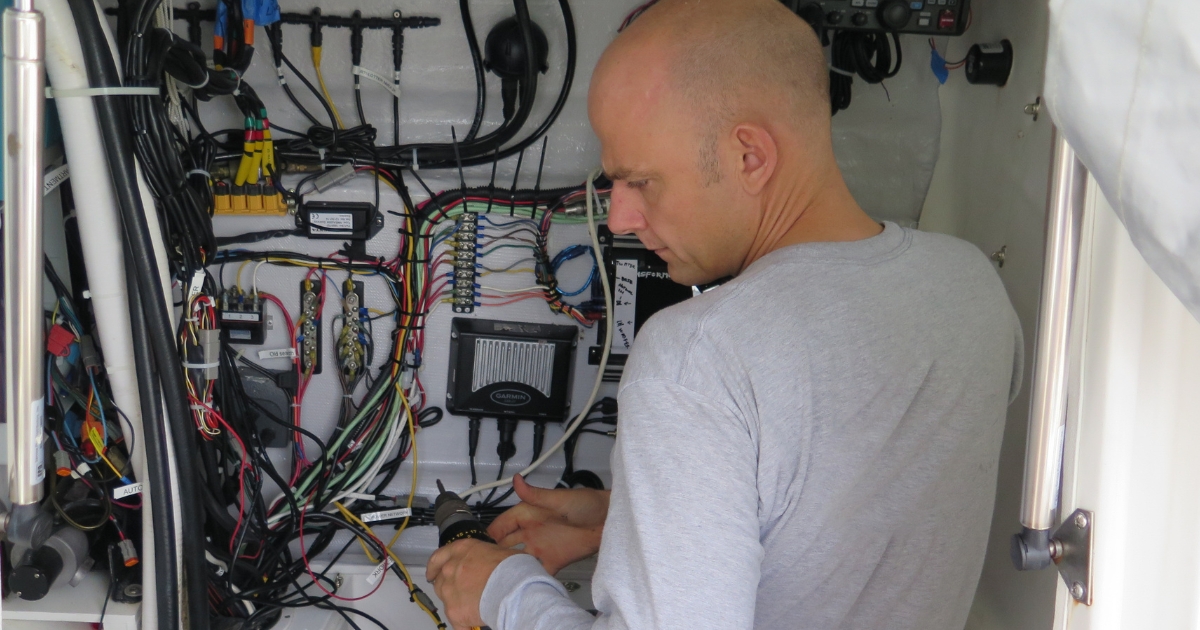
Which entry level qualifications will I need?
As for all crew working on board, to be a superyacht engineer you need to have completed your STCW basic safety training (a five day course) and have a valid ENG1 medical certificate. Assuming you follow the standard route into engineering, once you have both the STCW and ENG1, you will need to complete the AEC 1 and 2.
AEC 1 provides students with basic theoretical knowledge, as well as some practical hands-on experience of diesel engines/systems to enable you to meet the MCA’s requirements. This covers the basic operation of engines and their support systems, as well as checks and fault finding.
You can then progress to the AEC 2 course, which covers topics as diverse as refrigeration, legislation (books and records), maintenance systems and techniques, lifting and slinging, safe systems of work, electrical distribution, basic hydraulic systems, fresh water and sewage systems, and much more.
What are the different roles within the engineering pathway?
Although this varies depending on the needs of the individual vessel, the engineering roles on board a superyacht typically range from fourth engineer through to third, second, first and then chief engineer. The key difference between these positions is found in the level of leadership and management responsibility attributed to each role.
Fourth engineer As the most junior engineering officer on board, the fourth engineer is still learning the ropes, and you will need to demonstrate a willingness to learn and get stuck in straight away in order to succeed in this role. Chances are, you will be splitting your time between phases at sea and phases ashore to attend the courses necessary to progress in your career. Third engineer With responsibilities varying from yacht to yacht, the duties of a third engineer are diverse and could include the maintenance of lifeboats, tenders, toys, jet skis and deck equipment such as winches, davits, and hatchways, as well as interior maintenance. Second engineer Typically the deputy to the chief engineer, the 2nd engineer has responsibility for the maintenance of the engine room, often taking on more challenging repair and maintenance tasks, as well as supervising more junior crew members.
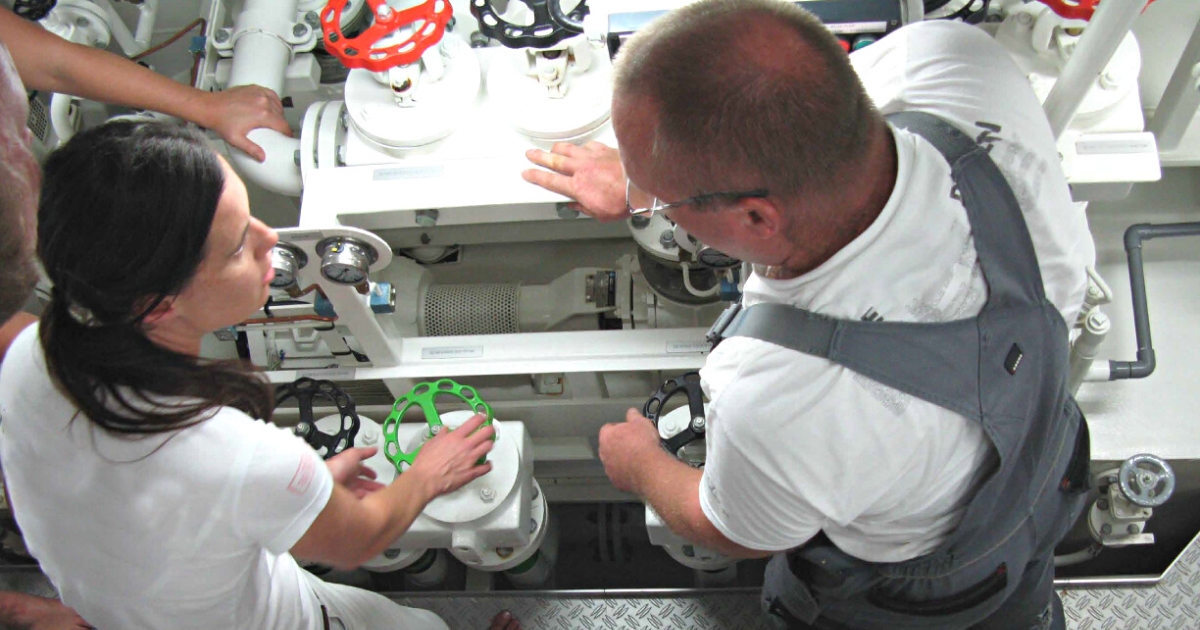
Chief engineer The chief engineer (often a sole engineer on smaller yachts), commands all engineering operations on board and will act as the senior advisor to the captain on all issues relating to the condition and serviceability of the engines, propulsion, ancillaries and interior systems.
Working closely with the captain to always ensure onboard safety, chief engineers are also responsible for maintaining compliance of the yacht’s systems and equipment with relevant laws and regulations to ensure that the vessel passes flag state and other surveys and inspections.
How do I rise up the ranks?
Progressing through the ranks requires you to apply for a certificate of competency (CoC) for each stage.
In order to qualify for the relevant CoC, there are various requirements for each role. These include attaining a certain amount of seagoing service, passing selected examinations (oral and written), and holding the applicable ancillary and safety course certificates. To discover the level of experience and exact qualifications required for each individual CoC, as well as other useful courses and qualifications to help you stand out from the crowd, visit the Academy by Ephemeris website and explore the engineering pathways .
A spokesperson from Academy by Ephemeris highlights: “The yachting industry is always in need of fantastic, tech savvy engineers. It is a fulfilling, challenging and stimulating career, and we are delighted to have helped scores of enthusiastic candidates to achieve their career goals by following the guidance laid out on our platform.”

Post your comment
You cannot post comments until you have logged in.
No one has commented on this page yet.
RSS feed for comments on this page | RSS feed for all comments
Search articles with keywords

How can engineering enable design innovation? Ask new questions .
How does the past inspire the future ? Ask new questions .
How does a North Sea solution apply to a superyacht? Ask new questions .
The company
Lateral Naval Architects provides complete engineering expertise to the superyacht industry, from project conception to delivery. Our core competence is engineering but our unique focus is on meaningful innovation to enable superyachts that meet the demands of today’s owners. Read more

Naval architecture
Structural engineering, mechanical engineering, outfit engineering, concept design, class level design, detail design, consultancy services.
With our extensive experience in the field of naval architecture Lateral is a leader in the field. A portfolio of in-service designs covering all hull form types, speed regimes, propulsion systems and construction materials demonstrates our expertise. Read more
Lateral specialises in the design of structures in steel, aluminium and composite. Through our teams 60 years’ experience in developing structural designs for yachts and specialised vessels we utilise an extensive knowledge base to deliver practical and pragmatic designs that are fit for purpose, efficient to build and with excellent attention to detail. Read more
Lateral delivers comprehensive breadth and depth of capability in the field of mechanical and systems engineering. We undertake whole vessel engineering from concept to detailed production design: Read more
The exterior outfit engineering of a modern yacht is a specialist domain demanding a high degree of multi-discipline experience, understanding of the yacht’s overall aesthetic and style, as well as unfaltering attention to detail. Read more
Concept Design —the embryonic stages of a yacht project — is that crucial phase when designers, naval architects, builders, and engineers come together to lay the foundation for the owner’s vision. Read more
Having worked with all the major classification societies, Lateral® brings significant depth of knowledge in achieving full class approvals in the most efficient and effective manner. Read more
Lateral offers a comprehensive suite of production engineering services. We believe in developing intelligent production designs that are practical and production friendly. We incorporate a high degree of detail, ensuring greater efficiency through the full integration of engineering. Read more
In addition to new build design and engineering Lateral® provides a wide range of consultancy services. Read more
Answers to new questions
See projects
Lateral, a company where expert is knowledge and insight is applied to exceptional projects. We have a performance-oriented culture where we know that our reputation is based on the quality of what we deliver. Meet our team

© copyright Lateral Naval Architects · Privacy Policy
Return to top

- Charter & Brokerage
- Yacht Design & New Builds
- Tenders & Toys
- Superyacht Events Calendar
- Career & Training
- Departments
- Superyacht Crew Finances
- Sustainability
- Shipyards and Marinas
- Health & Wellbeing
- Polar Region
- Our Services
- Meet the Team
How to Become A Yacht Engineer
.png)
Are you looking for a career as a yacht engineer?
Wilsonhalligan have compiled a breakdown of the qualifications and requirements needed to start out as a yacht engineer. As well as insight into the job day-to-day and how to effectively land your dream position.
What does a Yacht Engineer do?
It depends on the type, size and usage of the yacht. But, the Engineering department are responsible for the operation, maintenance and repair of all:
- electricals
- electronics
- as well as in some cases, structural systems and appendages found on board a modern yacht and superyacht.
Skills needed to be a successful Yacht Engineer:
The role requires a keen eye for planning and organisation. Planned maintenance (carrying out preventative and explorative maintenance before failures occur) is a very important aspect in modern marine engineering. Skills in project management, resource allocation and time management are very desirable, in addition to extensive and diverse technical ability. Many yachts employ software programmers to aid a methodical approach to planned and preventative maintenance, as well as to record failures and repairs as they occur. As well as keeping an accurate inventory of spares held on board. Being able to efficiently use such software programs efficiently would be highly advantageous. Examples of these asset management programs are AMOS and IDEA .
Challenges as an Engineer Onboard a Yacht:
Engineering on a superyacht has particular challenges. Some yachts (particularly charter yachts) can be very busy, meaning a very fast paced and demanding environment. High expectations from owners and guests in regards to service and entertainment also puts a keen onus on engineering departments. They are expected to keep all systems working to minimise or eliminate down time and negative impacts on the itinerary. Of course, when the yacht is at sea, many of these systems are safety critical. Break downs and failures offshore bring a whole new set of challenges and risks.
Which qualifications do I need to get in to Superyacht engineering?
There are really two main entry routes in to yacht and superyacht engineering. They follow two distinct certification pathways – entering from commercial shipping, or working through yacht-based certification routes.
Firstly, the Commercial Shipping Route of Training for Yacht Engineering:
The Commercial Shipping route most commonly begins with a sponsored cadetship with a shipping company. Who, are working in partnership with maritime training providers. Candidates must apply to one of a number of cadetship schemes. And, if accepted will undertake usually 3 years of study and work experience on the sponsoring companies’ vessels. Culminating very often in the Officer of the Watch (Engineering) or ‘EOOW’ ticket. And, usually either an HND or BSc Degree in Marine Engineering or similar.
Once the EOOW certificate is in hand, candidates can be considered suitably qualified. As well as experienced for junior engineering officer roles on large yachts. A common first yachting job for EOOW qualified candidates is 3 rd Engineer. The main advantage of a cadetship is that seatime is gained quickly and on vessels over 3000 GT. It also allows for a ticket which is ‘unlimited’ by tonnage as all yacht engineering certificates are. This opens the door to working on the world’s largest mega and superyachts.
Also, the sponsoring company pays for all courses and examinations which would be extremely expensive if self-sponsored. And, very often a small training bursary is paid on top (some as much as €11,000 / year). The biggest disadvantage is that candidates will have to commit to different types of vessels during the cadetship. These are likely to be chemical tankers or containerships. But most of the large luxury cruise ship companies also offer cadetships. Which, is in some ways closer to the yachting industry. One facilitator of maritime cadetships is the Warsash Maritime Academy – see here .
Secondly, the Yacht Certification Route of Training for Engineering:
This route is made up of 6 key certificates:
The Approved Engine Course (AEC). Often seen as the base-minimum for superyacht engineers who wish to work on yachts over 24m LOA. Usually a 4-day course covering the theory of compression-ignition (diesel) engines and includes a large amount of practical workshops. View the full syllabus for the Approved Engine Course (AEC) . One common provider of AEC courses is Bluewater Yachting in Antibes – see here .
The Marine Engine Operators Licence (MEOL). This is the first certificate in the yacht route that requires sea service, specific shore based learning and an oral exam. View further details on MSN 1859 here .
Y4 Engineer. The first of what is commonly referred to as the ‘Y Tickets’. Y4 allows engineers to work as Chief Engineer on yachts between 200 and 500GT. And, up to 1500Kw in propulsive power.
Y3 Engineer. Allows engineers to work as Chief Engineer on yachts up to 3000GT and up to 3000KW in propulsive power.
Y2 Engineer. Allows engineers to work as Chief Engineer on yachts up to 3000GT and up to 6000KW in propulsive power.
Y1 Engineer. Allows engineers to work as Chief Engineer on yachts up to 3000GT and up to 9000KW in propulsive power.
The Maritime and Coastguard Agency have simplified the Y ticket structure however, and page 19 of MIN 524 provides a simple conversion table from Y tickets to the new standard – Small Vessel (or SV) tickets.
Some course providers are now offering yachting cadetships – one example is this one provided by the UKSA in Cowes on the Isle of Wight .
How To Find a Job as a Superyacht Engineer
Once you have the relevant qualifications, then comes the time to start looking for your first position. Of course, word of mouth and personal connections made through training are a fantastic way to gain knowledge on current positions available however, also consider the following:
Dockwalking – travel to one of the main Superyacht hubs like Palma, Antibes or La Ciotat and walk the docks asking yachts if they need engineering crew. You should take a proper CV , references , and make sure you are well – presented. Be polite and prepare yourself for some face-to-face rejection . However, don ‘ t take things personally .
Use a reputable crew agent such as wilsonhalligan who are MLC 2006 compliant, vastly experienced and a well respected crew recruitment agency in the industry who does the dock walking for you!
We hope you find this helpful! And, we wish you luck on all your career endeavours.
Check out the latest yacht crew jobs available with wilsonhalligan. also, like their facebook page where they post featured yacht engineer jobs as well as the latest jobs available..
For the latest Superyacht Content career and training news, click here.
Wilsonhalligan
Related articles, galley crumbs: top 5 pre-retirement options for superyacht chefs, the crew network – top jobs this week, life after yachting: oceanform. from wearing uniform to designing them, the crew network: introducing their palma office.

Popular Posts
- Take Me To Hawaii – Compass Tenders’ Latest Limousine
- Top 5 Chase Tenders
- Dubai Experiential Yachting Forum 2023: Registration Is Now Open
- CrewPass Background Checks & Daily Operations Hub For Yacht Crew
- WOW: 95m Lurssen Madsummer for sale
Superyacht Content
Social media influencer and digital brand expert.
Superyacht Content brings you the latest in social news for the superyacht industry.
Keep up to date with us across our social channels, and don’t forget to hit that share button!
- Superyacht News
- Superyacht Jobs
- Superyacht Marketing
Join our Newsletter
- Your Name First Last
- Your Email *
Copyright © 2023 Superyacht Content | Website Design by Zonkey
Privacy | Credits | Get in Touch

Award winning yacht interiors

Unrivalled refit skills

Electronic innovation

Visionary new builds

World class training and certification

Research heritage and investment
Great british superyachts, products and services.
The UK offers extraordinary capabilities in the superyacht sector, from the creation and refit of some of the world’s leading luxury yachts and innovative development and support of high quality equipment, through to key services that owners and captains can trust.
Great Britain’s impressive superyacht capability is advocated by Superyacht UK, which additionally draws on the resources of the 1500 member British Marine trade organisation, founded in 1913, of which we are a part. Founded on decades of craftsmanship and innovation, our members are at the forefront of superyacht development, from naval architecture, design and engineering, through all the many skills necessary to see a superyacht into service and and effectively managed and supported throughout its service life.
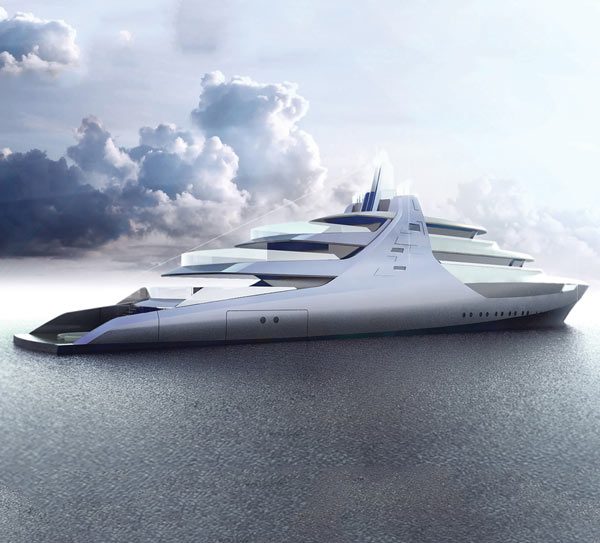
Young Designers Competition 2024
This year’s competition, in partnership with Sunseeker International, introduces two categories for entry for pre-graduation and master’s university students.
Twelve places are available. Participants will hand-draw their designs according to specific briefs during the two-day event at the Southampton International Boat Show in September.
Completed entry forms must be submitted by 19 April 2024.
UK superyacht statistics
*Superyacht UK’s annual research, available exclusively to all members, demonstrates the significant activity of British companies in the global superyacht scene. Our 2019 report shows the sector added £308m in GVA to the UK economy in 2018/19, a 7 per cent increase on the previous year.
Coronavirus advice
Members have access to full coronavirus information from our parent organisation, British Marine
Search for information or a Superyacht UK member
Latest news, british marine are recruiting for a superyacht uk manager.
British Marine is the trade association for the UK leisure, superyacht and small commercial marine industry. Through the provision of […]
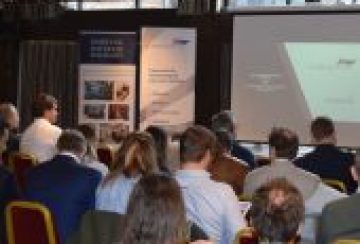
Last chance to secure your place at the Superyacht UK Technical Seminar 2024
Don’t miss out – bookings close Tuesday 2 April Superyacht UK (SYUK) are pleased to confirm that the annual Superyacht […]

Superyacht UK Young Designer Competition officially underway
University Staff and students enjoy visit to Sunseeker International to learn more about the competition and tour the Sunseeker Shipyard […]

Superyacht UK Young Designer Competition 2024 launch announced
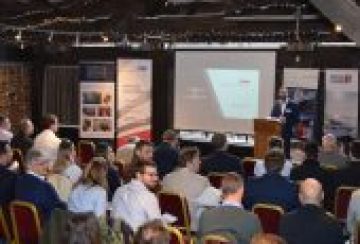
Agenda released for Superyacht UK Technical Seminar 2024
We are pleased to announce that the latest agenda for the annual Superyacht UK Technical Seminar has been released […]
Superyacht UK Technical Seminar Announced for 2024
We are pleased to announce that the annual Superyacht UK Technical Seminar is set for a return to a […]
Forthcoming events

Superyacht UK Young Designers Competition 2024
Further information
Superyacht UK is running the 2024 edition of its highly successful Superyacht UK Young Designer Competition this year at the Southampton International Boat Show from 16-18 September 2024.
Superyacht UK services for members
Comprehensive support for members and global technical representation
Top class events to meet other members and key decision makers
Global communication of the strength of Great Britain’s superyacht capabilities
Wealth of unique market specific data enabling effective business planning
Wide range of documentation, templates and other resources
Support across a wide range of marine and business issues, when you need it

Yacht design at Solent
If you have a passion for engineering and an interest in water sports, our yacht design courses offer the chance to carve out a great career helping design everything from race-winning yachts to multi-million-pound superyachts.
Solent University offers unique and highly regarded courses in yacht and powercraft design and production, delivered right in the heart of the south coast’s marine industry.
Our design degrees will help build your theoretical and practical knowledge to take the first step in your career as a yacht designer. You can study the engineering science underlying great design, along with the fundamental principles of naval architecture, construction methods and high-tech fibre-reinforced composite materials. You will also learn essential planning and management processes for the efficient, effective production of racing sailing yachts, RIBs, motor yachts, cruising yachts, patrol boats and commercial craft.
Based in the heart of Southampton – a busy city port on England’s south coast, with a thriving watersports and yachting scene – we are perfectly placed to help you build your professional network and benefit from work experience opportunities. Students attend local boat shows, including the Southampton Boat Show and Seawork International, with previous students having also benefitted from yard visits to renowned companies such as Sunseeker.
Our graduates are noted across the globe for their unique skills, and have gone on to various industry roles – including naval architect or design engineer – at companies such as Laurent Giles Naval Architects, Sunseeker Yachts, Humphries Yacht Design, Monaco Marine, Viareggio Shipyards in Italy and Incat Crowther Design in the USA.
The courses are delivered by a team of specialist naval architects and production designers, supported by CAD/drawing office instructors and FRP workshop instructors. All team members come from the yacht and small craft industry and maintain their close links through consultancy, design practice and professional bodies.
Frequently asked questions
How do i become a yacht designer.
Yacht design requires a range of technical and engineering specialist skills, as well as a good grasp of hydrodynamics and mathematics. A yacht design degree offers the ideal combination of academic and hands-on technical skills; alternative routes into the role might be to undertake an apprenticeship with a design firm, or to take an entry-level position in a design firm and work your way up into a designer role.

Experience Solent for yourself at an open day
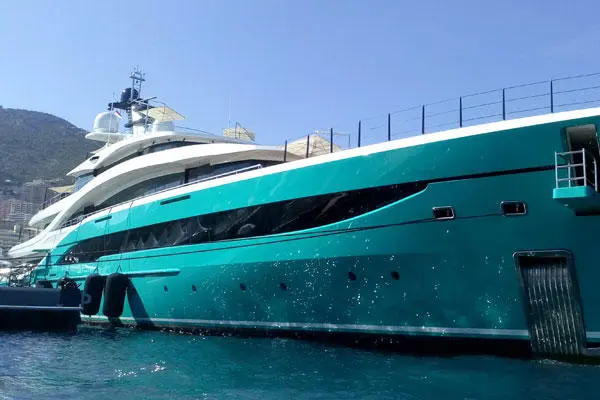
MSc Sustainable Marine Craft and Superyacht Design
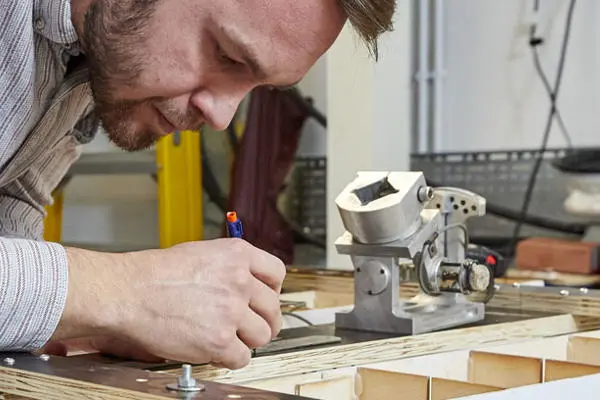
BEng (Hons) Yacht and Powercraft Design
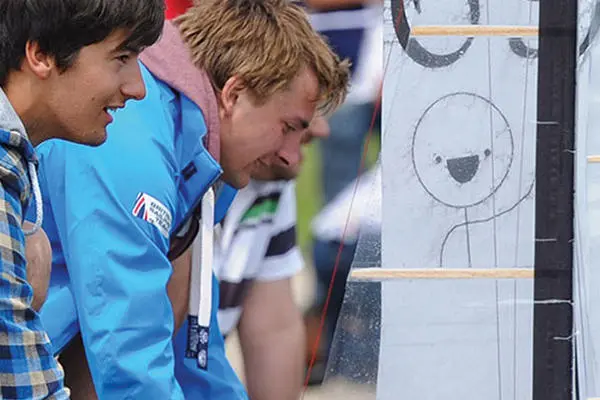
BEng (Hons) Yacht Design and Production
Students have full access to the University’s specialist facilities, including industry-standard CAD and drawing offices, as well as a fully equipped specialist composite workshop, a 60-metre towing tank and a static four-metre stability tank which has been used to test America’s Cup racing yachts and other craft for industry leaders.
The Solent composites lab is designed to handle all of the processes commonly seen in composite construction, from hand- and vacuum-assisted laminating to pre-impregnated fibre construction and resin infusion. We also undertake the construction of prototype models, towing tank models, display models and tooling, offering a turnkey solution to model evaluation and a cradle-to-grave approach to creating a prototype or product. Equipped to handle polyester and epoxy resin in any combination of FRP materials – including glass, carbon and aramid fibre – the composites lab has a well-established reputation in the area of marine construction and repair.
Solent Stories
Alex Lee Graduate Graduated: 2017
Elodie Grenen Graduate Naval Architect Graduated: 2020
Nadia Lele Graduate Graduated: 2017
Related subjects

- Skip to main content

- All countries /
- Engineering /
- Marine Engineering
22 Universities in the UK offering Marine Engineering degrees and courses
More Information
Are you looking for Marine Engineering courses? Here you can find course providers offering full-time, part-time, online or distance learning options.
You've reached your limit of 10 Favourites
University of Aberdeen
THE World Ranking: 201
University of Exeter
THE World Ranking: 177
University of East Anglia UEA
THE World Ranking: 251

University of Strathclyde
THE World Ranking: 301

University of Southampton
THE World Ranking: 97
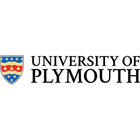
University of Plymouth
THE World Ranking: 401

Heriot-Watt University
THE World Ranking: 351
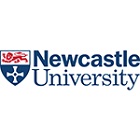
Newcastle University
THE World Ranking: 168

Liverpool John Moores University
THE World Ranking: 501

Robert Gordon University
THE World Ranking: 801
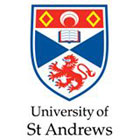
University of St Andrews
THE World Ranking: 193

Solent University (Southampton)
- Marine Electronic Engineering
- Marine Electronics / Instruments
- Naval Architecture
- Offshore Engineering
- Ship & Boat Building / Marine / Offshore Engineering & Maintenance
- Ship Science
- Yacht Building
- Study level:
- All study levels
- Postgraduate
- Undergraduate
- Study mode:
- Online/Distance
- Cross-border
Filter your results
Tell us about you.
- Nationality Select country Select country
- My current qualification is from Select country Yes No Select country Select country
- Current qualification {0} is not applicable for the study level you selected below. Qualification Qualification
- Grade type (only one grade type for your qualification) Grade type Grade type
- My score (current or expected) Please select Please select Please select Please select Please select Please select
Tell us your preferences
- Subject Marine Engineering
Qualification
- Destination UK
- Study options
- Annual tuition fees
Subject areas
Destination.
- The UConn School of Business has grown to become one of the most comprehensive business schools in the country.
- NEW: Want to study in your home country for a foreign qualification? Find out more about cross-border study!

Marine Engineering Apprenticeship Programme Details
The first year of Oyster’s engineering apprenticeships programme covers everything you will need to get going and progress safely and confidently. This includes foundation training in Health & Safety, safe and accurate use of hand tools and machines, along with a range of basic techniques such as making brackets and fittings with various materials, and understanding basic engineering drawings and systems. You will also learn to identify different materials and their individual properties and uses, and compile a workbook detailing all tasks you have undertaken throughout the first year of the engineering apprenticeships programme.
Year 2 of our engineering apprenticeships programme covers a range of essential engineering skills that you will be able to call on throughout your career. Our experts will lead you through a wide range of topics that will include how to work with basic hydraulic systems, how to machine accurately, various welding techniques, as well as fitting and aligning engine and gear boxes, and much more. These essential skills will set you up for the advanced engineering skills you will learn in Years 3 and 4 of our marine engineering apprenticeships programme.
Years 3
This year, you will get to grips with the more advanced elements of marine engineering that will take your skills to the next level. This will include expert guidance on how to install complex systems including an entire fuel system and water systems, running hydraulic lines through the boat, and installing a sea water cooling system. You will also learn how to commission and test and fine tune all these systems once they have been fitted correctly.
In the final year of Oyster’s marine engineering apprenticeships programme, you will cover the installation of a sea inlet manifold and complete gas systems. You will also assist the team with the complete commissioning process of a boat, making sure every element is fitted and set up to perfection, in readiness for the handover to its new owner. At the end of four years, you will be fully qualified and ready to take the next step in your career as a marine engineer , with the reassurance that you have been trained to the highest standards by industry-recognised experts on the Oyster marine engineering apprenticeships programme.
QUICK LINKS
More Information
Sign up to our newsletter
Be the first to hear about new launches, exclusive events and all things Oyster
© 2024 OYSTER YACHTS
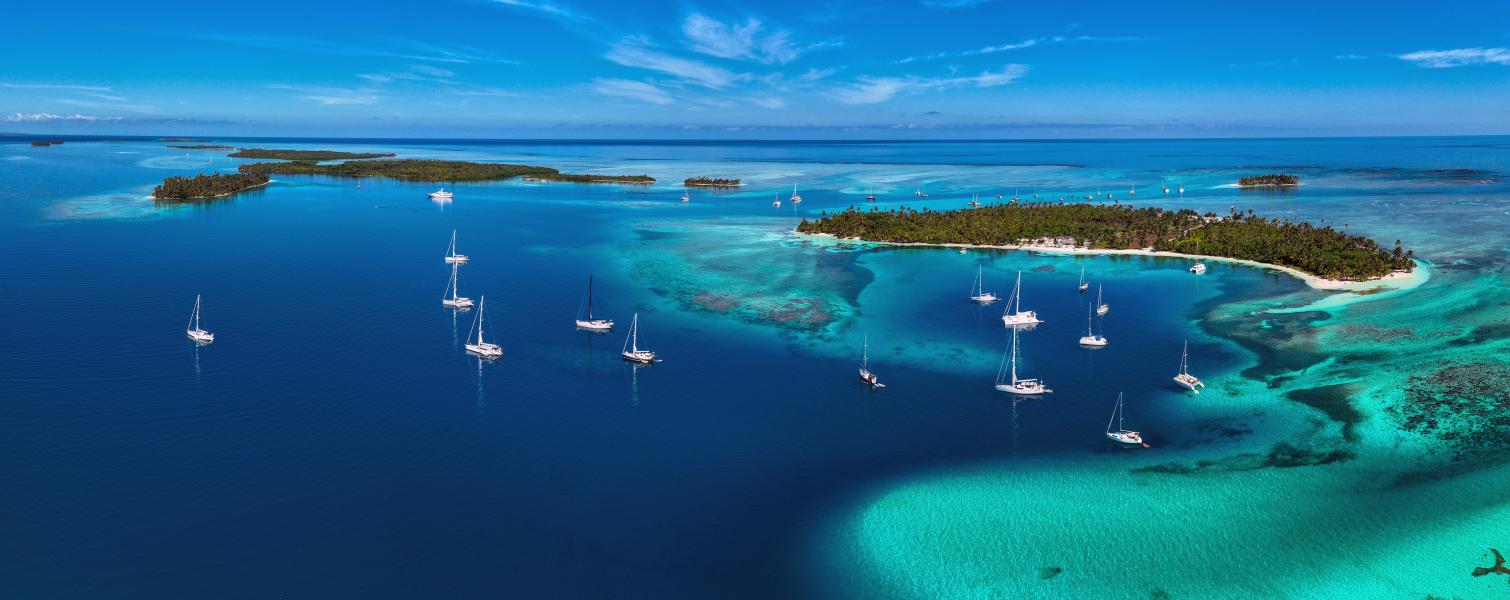
OYSTER WORLD RALLY
The Oyster World Rally 2028-29. Embark on the sailing adventure of a lifetime. Entries open 18 June 2024
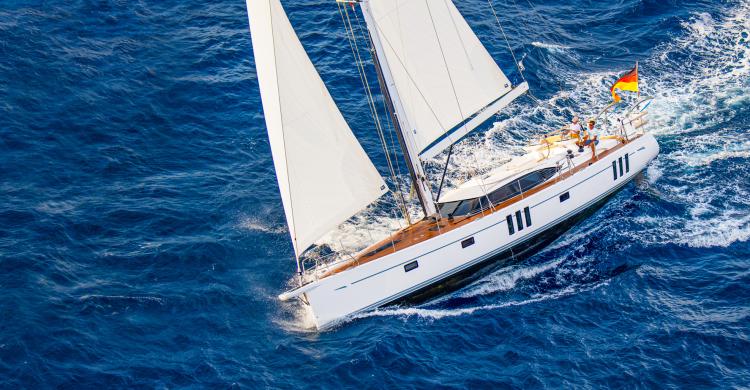
The new 565 Series II
The pursuit of perfection continues
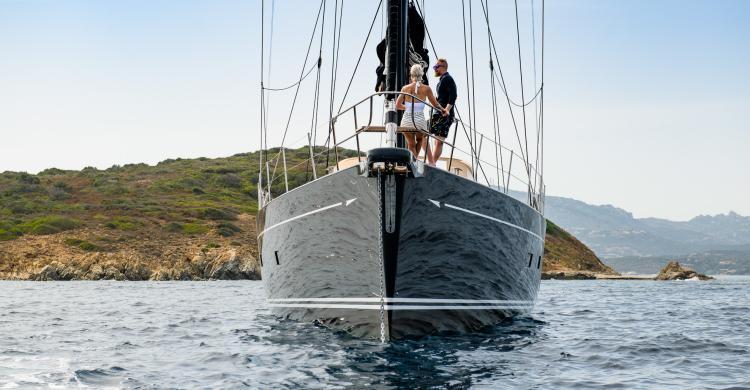
Explore the benefits that come with taking ownership of a new Oyster, and becoming part of the family
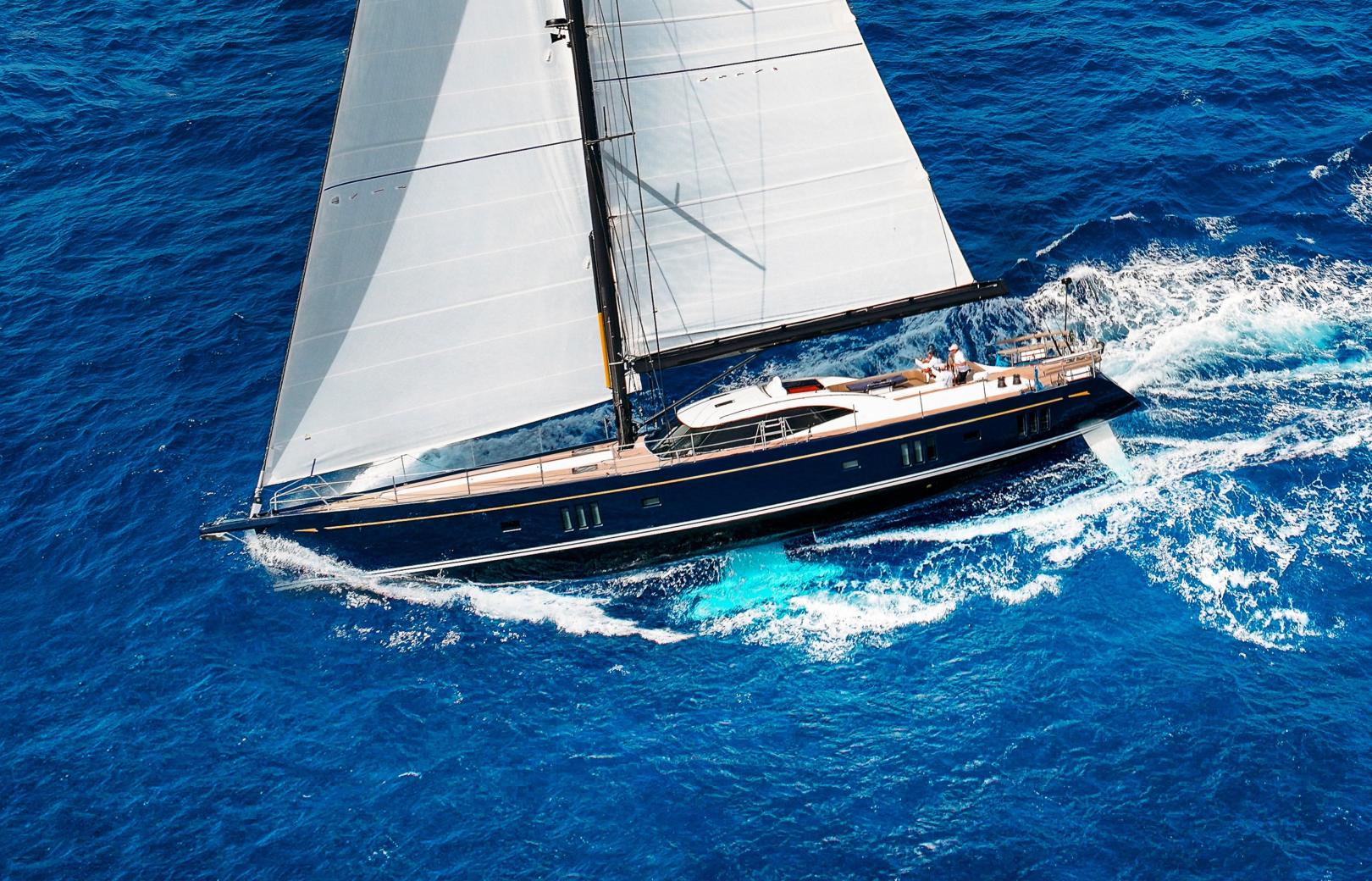
GRAND TOURING
Elaine bunting reviews the new oyster 885gt.
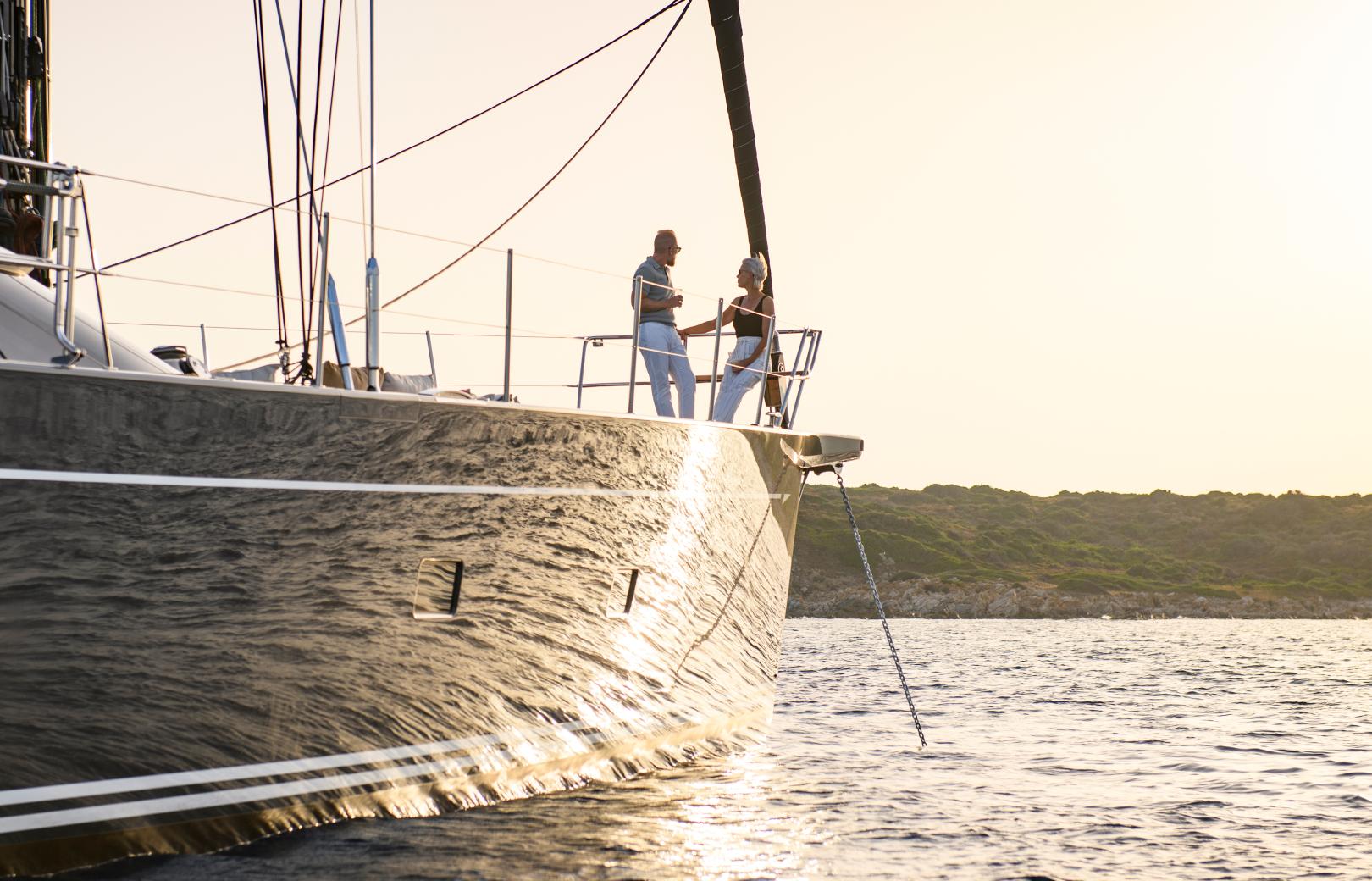
LUXURY CHARTER
Experience exhilarating sailing, luxury and style on an oyster charter. personal, exclusive and uniquely oyster.
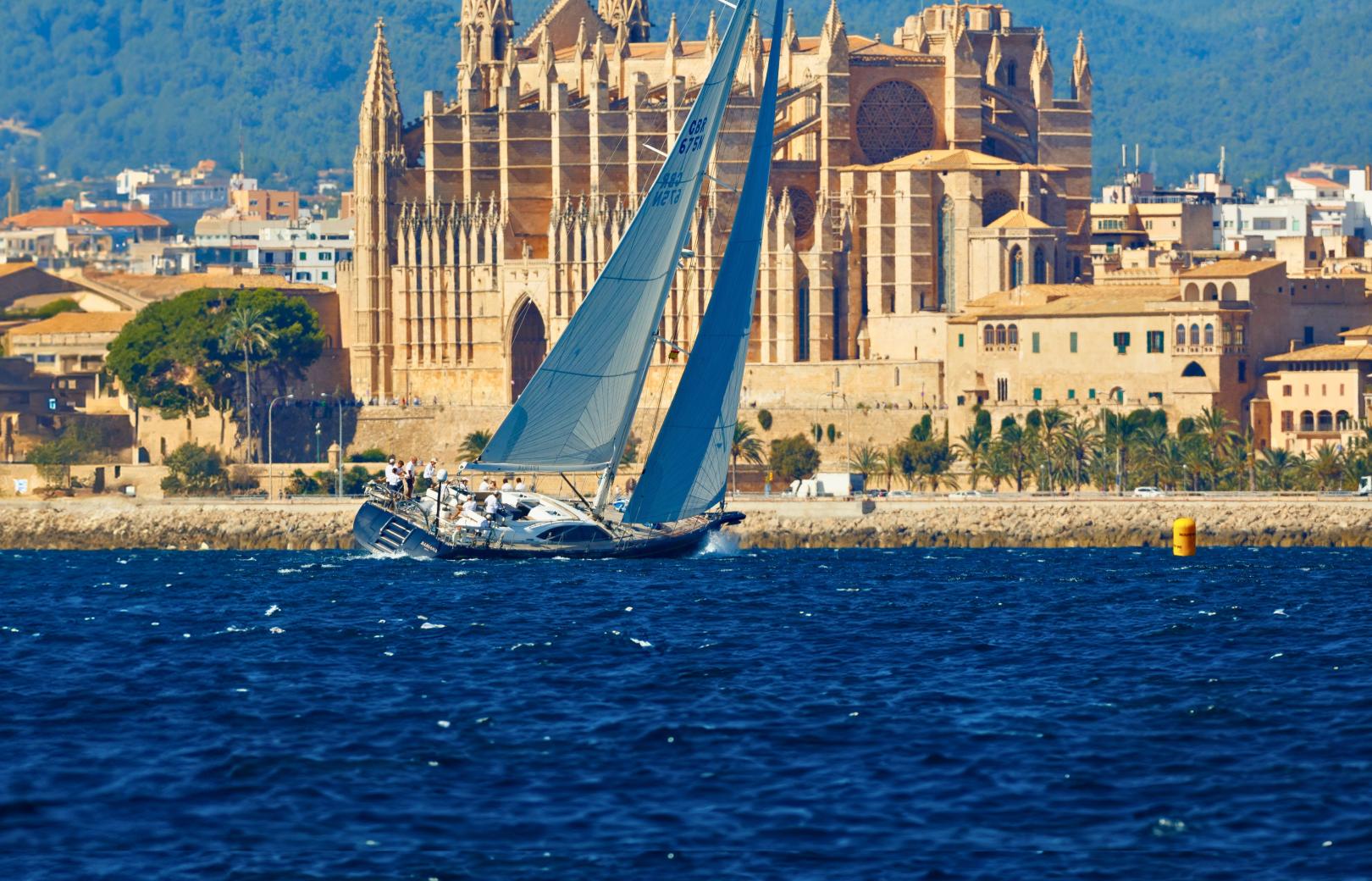
Join Oyster Brokerage at the Palma International Boat Show, 25-28 April 2024. Book your tour today
Oyster world rally.
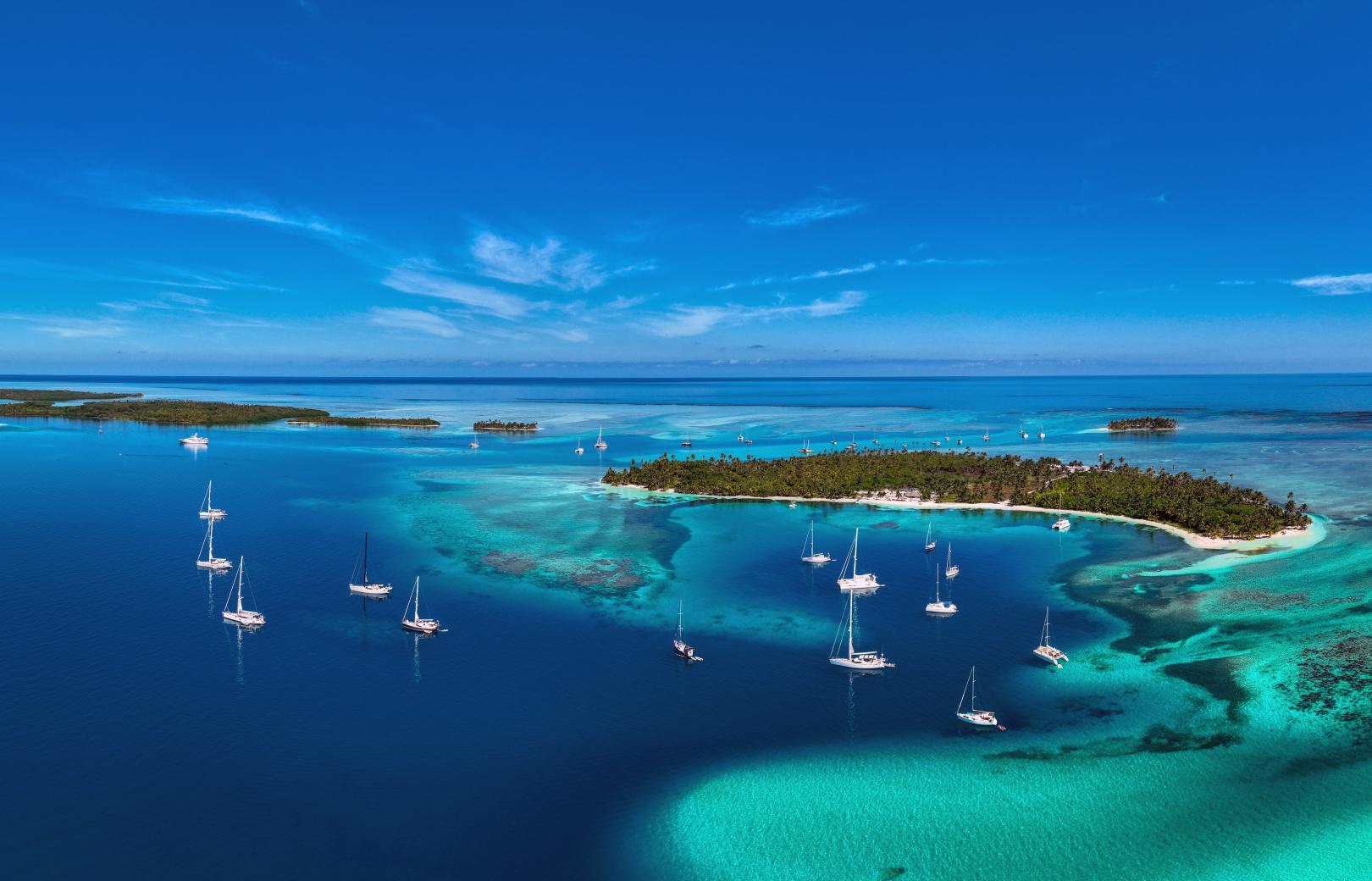
Entries open for the Oyster World Rally 2028-29. Embark on the sailing adventure of a lifetime
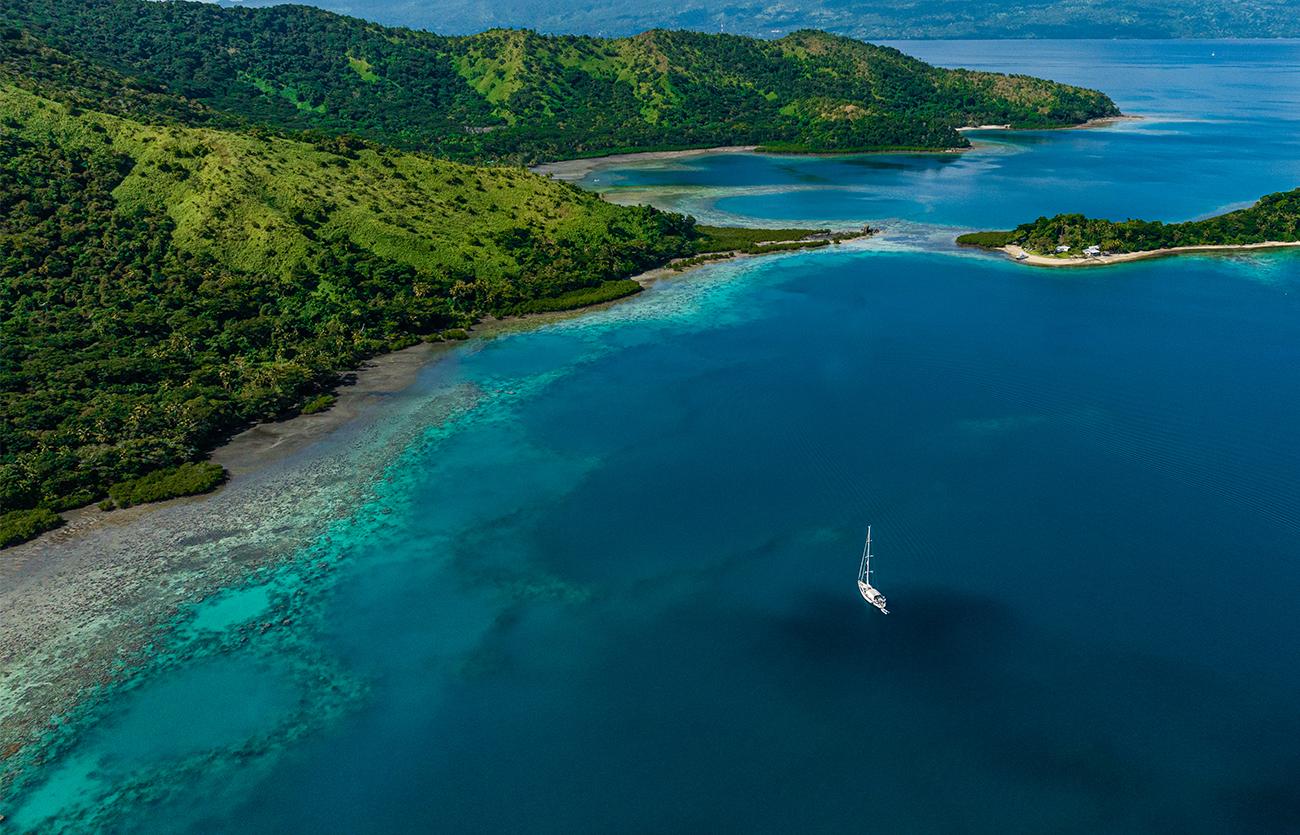
Follow the Oyster World Rally 2024-25 fleet live
Winner of European Yacht of the Year 2023. She sets a new 50 foot bluewater benchmark, offering a stunning combination of sailing performance, comfort, safety and luxurious living space.
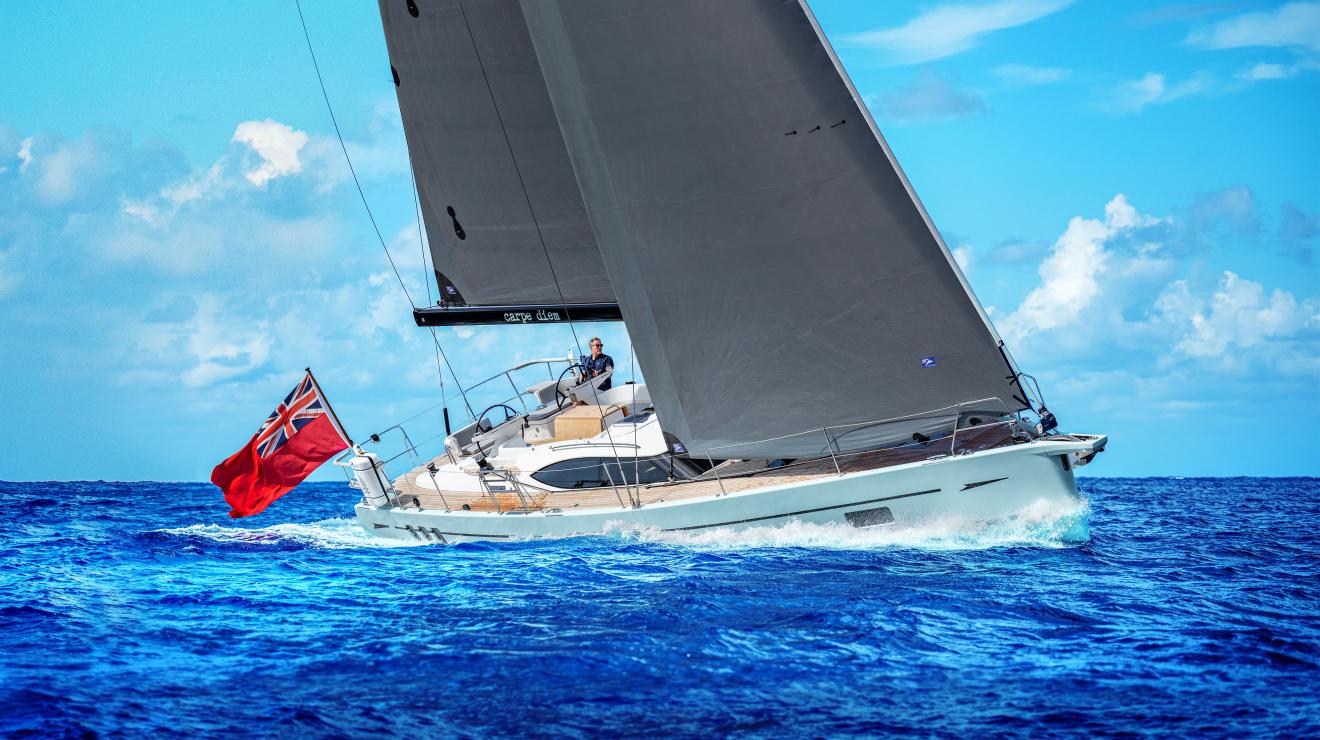
Heralding a new generation of Oysters, this 60 foot bluewater cruiser is a sailing yacht for all oceans. Practical and well-provisioned for long distance sailing or cruising in coastal waters.
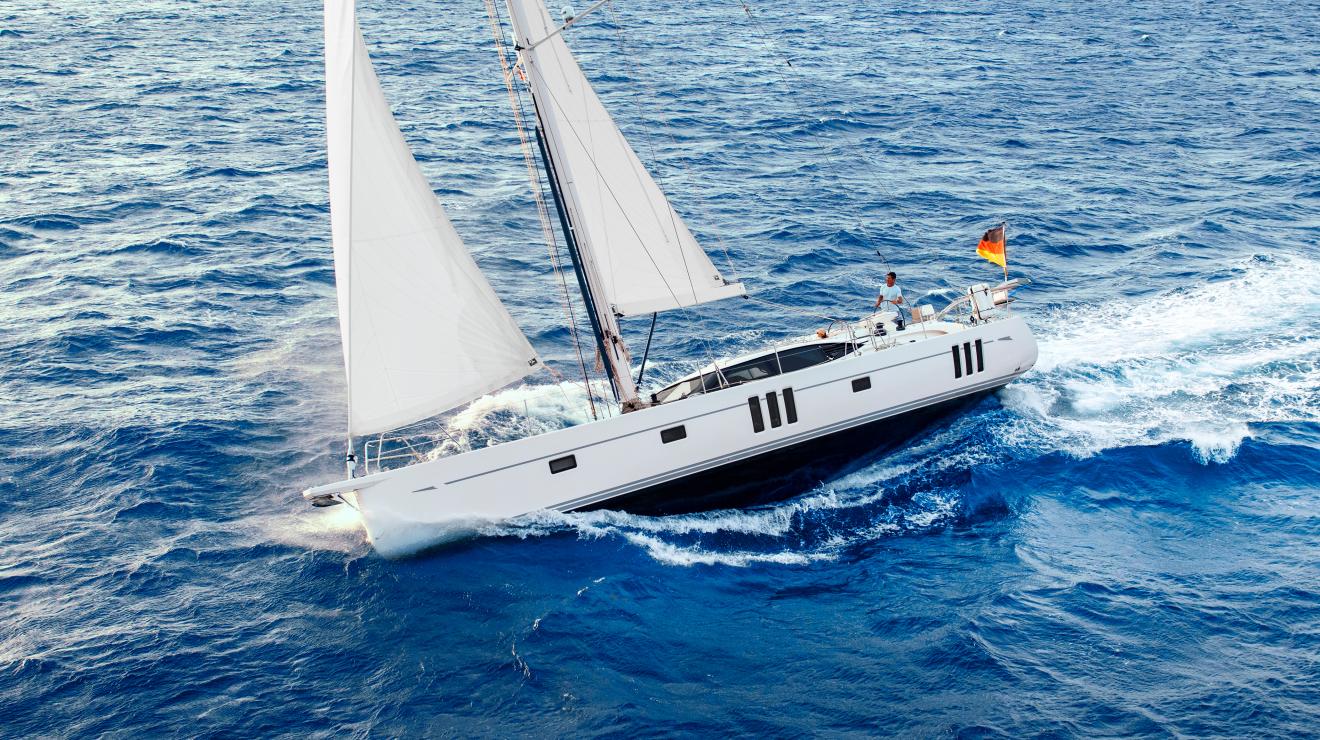
The much-anticipated Oyster 595 is well-proportioned and extremely versatile. Offering exciting, customised build options with no compromise, she is capable of great things.
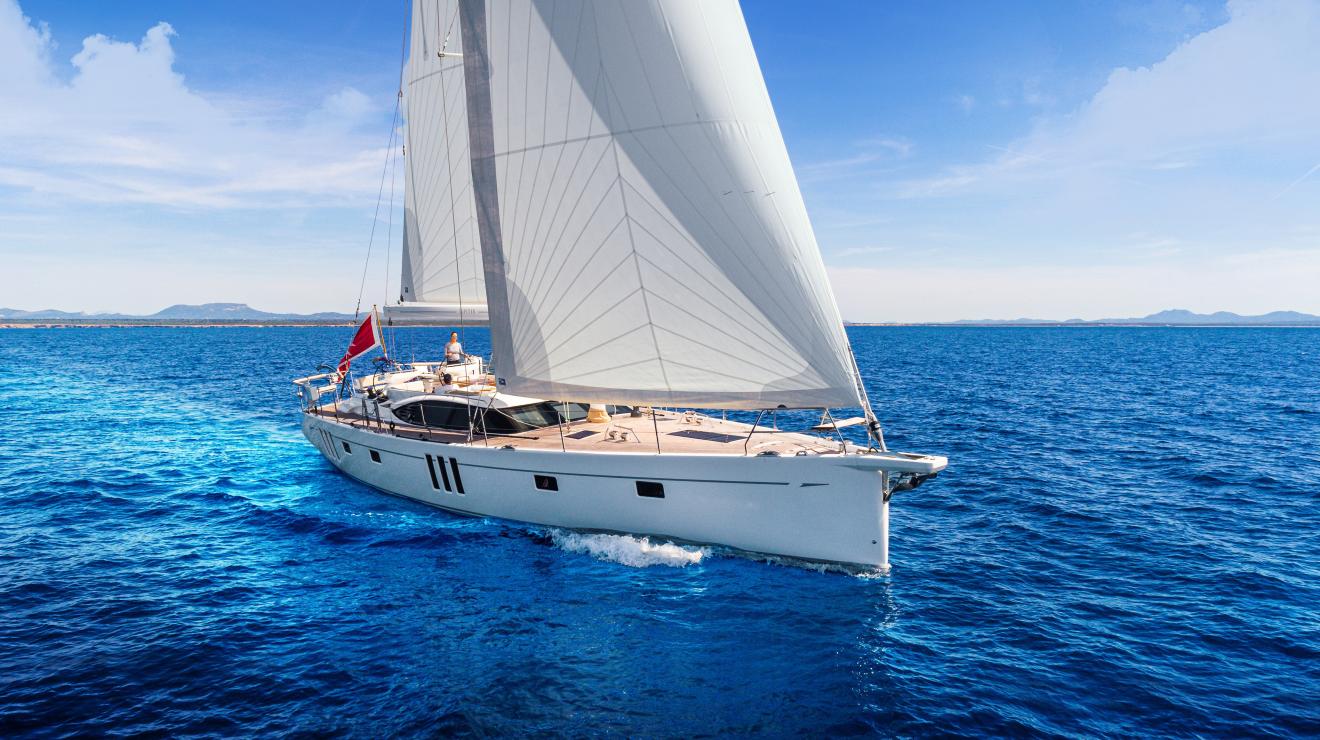
A versatile sub-70 foot sailboat offering the perfect balance of size and practicality. She can be sailed shorthanded effortlessly or take a full crew and up to eight friends and family.
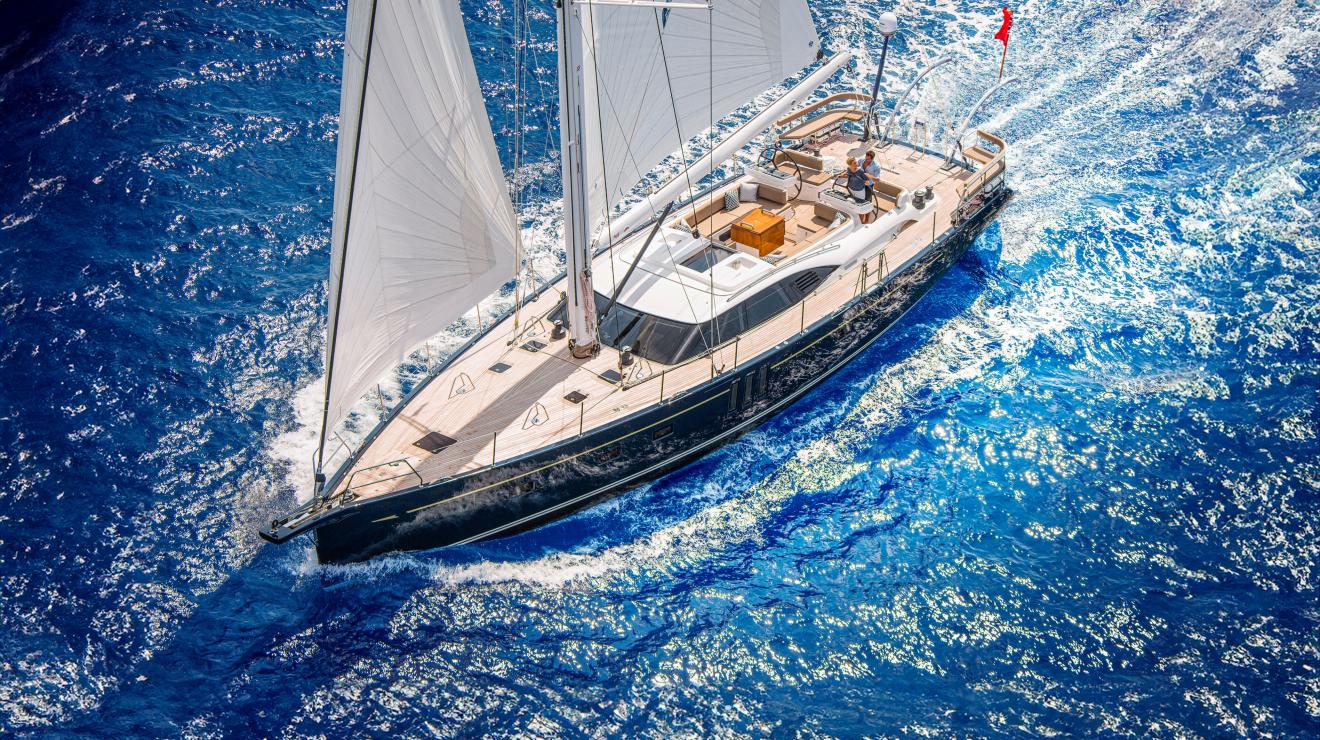
This long range 75 foot cruising yacht is designed for very big adventures. A joy to sail yourself, she also boasts dedicated crew quarters.
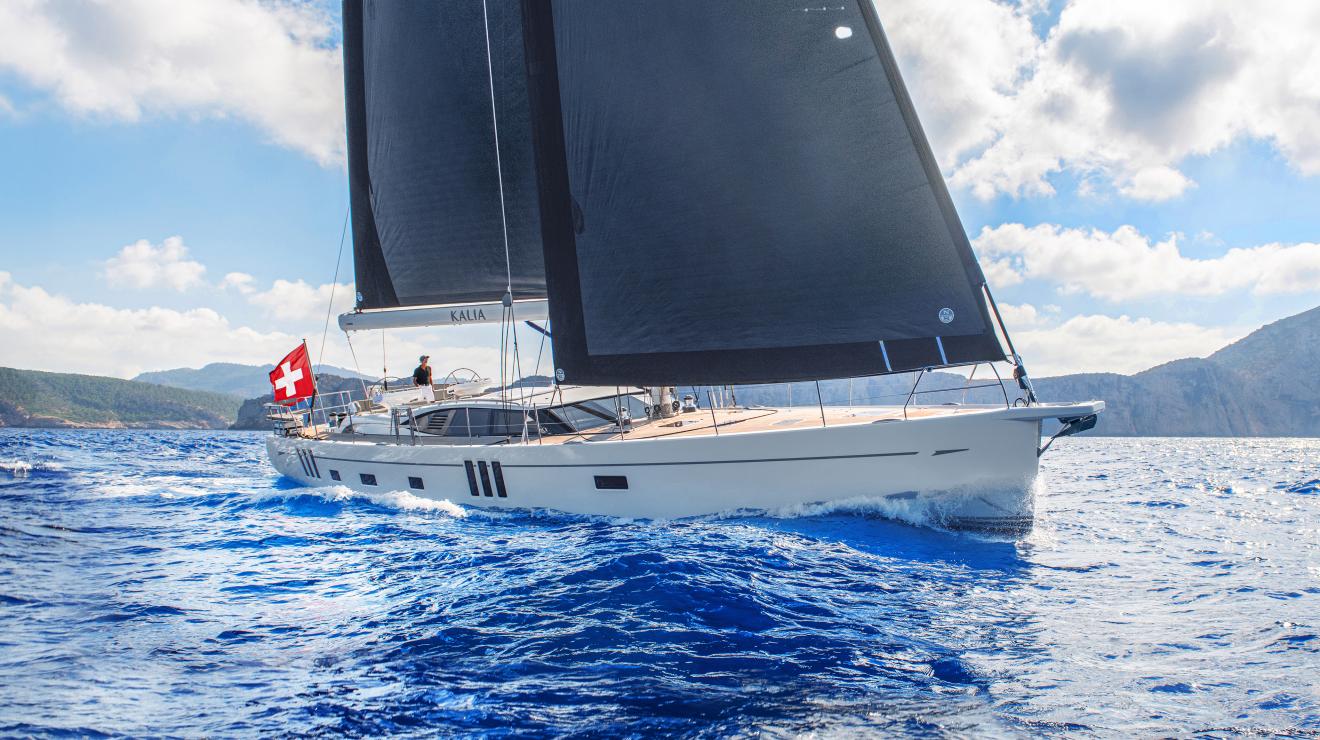
Oyster 885SII
An exhilarating 90 foot sailing yacht, delivering comfort and safety with uncompromising performance. She is capable of taking you anywhere in the world effortlessly, in luxury and style.
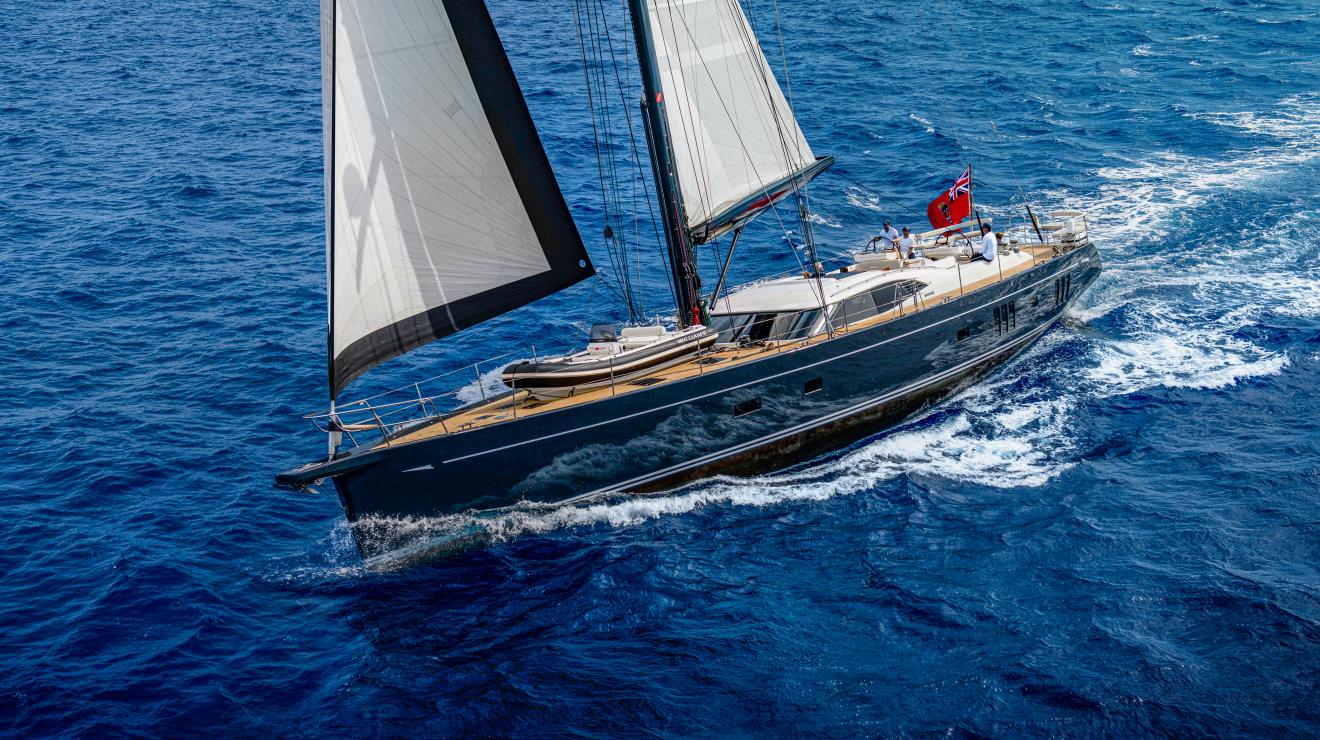
First name *
Last name *
Phone number *
Country/Region *
Attach CV *
Attach covering letter
Current occupation
LinkedIn profile

30 & 31 October 2024
Nec, birmingham.
- Partners & Sponsors
- Advisory Board
- Lab Innovations
- Advanced Engineering – Southern Manufacturing Electronics
- AE Sustainability Practices
- Partners & Sponsors
- Meet the Buyer with ADS
- Innovation Investment Zone
- Santander Navigator
- Feature Submission
- Download the app
Innovation & Sustainability
- Enabling Innovation Zone
- Innovation Trail 2023
- Sustainability Trail 2023
Partners & Sponsors

Useful Information
- AE Sustainability practices
Where Industry and Innovation Converge

The UK’s only trade exhibition for the entire laboratory industry
Newsletter sign-up.
- Why Exhibit?
- Login to MyEasyfairs
- Exhibitor Academy
- Exhibitor Job ads
- Exhibitor enquiry
- Sponsorship
- specifications
- Operations Manual
Exhibitor Categories
- Additive Manufacturing
- Advanced Metals
- Composites Engineering
- Digitalisation & Automation
- Electrification & Sustainable Fuel Technology
- Electronics Engineering
- Machines & Precision Tools
- Materials Innovations
- Product Design & Engineering
- Surface Treatment & Finishing
- Test & Quality Control
Become an exhibitor
- Why exhibit?
- Enquire to Exhibit
- Stand Options
- Sponsorship Info
Already exhibiting?
- MyEasyfairs Login
- Exhibitor Manual
- Book your stand now
Already exhibiting
- Exhibitor academy
- Drive Stand Traffic
More opportunities
- Sponsorship info
- Digital opportunities
- Advertising Specification

- Meet 2024 Exhibitors
- Exhibitor products
- Exhibitors news
- Innovation Gallery
Exhibitor List
- View the 2023 exhibitors
Product Catalogue
Exhibitor news.
- Hear from exhibitors
- See open vacancies
Discover 2024 Exhibitor
- Exhibitor list
Exhibitor categories
- Electrification & Sustainable Fuel Tech
- Full Programme
- Aero Engineering Forum
- Auto Engineering Forum
- Composites Engineering Forum
Conference 2023
- Composites forum
- Automative Forum
- Aerospace Forum
- Automotive Forum
- Getting here
- Smart Badges
- Innovation Trail
- Enabling Innovation
- Sustainability Trail
- Innovation & Sustainability
- VIP programme
Who visits?
- Civil & Construction
- Defence & Security
Marine & Yacht
- Medical Devices
- Space & Satellite
- Sports & Leisure
Practical Info
- Smart badge

Discover AE
- Meet the buyer with ADS
Getting there
- Plan your visit
- Hotel options
Discover our key features

- Newsletter Form
- Industry News
- Image Library
- Post-show Report
Digital Hub
Engineering news.
The latest news from the engineering word
Image Gallery
Discover images from recent editions of the show
Video Gallery
Find videos, clips and interviews
Press release
Read recent press releases and articles
Show Report
Download the most recent post-show report
Read recent blog post and interviews

30 & 31 Oct 2024 | NEC Birmingham
Inspiring the future of engineering and manufacturing in marine & yacht.
Marine and yacht engineering is a specialized field that deals with the design, development, and maintenance of ships, boats, and yachts. This includes the design and construction of different types of vessels, such as cargo ships, cruise ships, ferries, and luxury yachts. Marine and yacht engineers work on different aspects of vessel design and operation, including propulsion, steering systems, navigation, and safety features.
Who you'll meet in 2023...
Each year hundreds of visitors from Tier 1s and OEMs visit the show. Here are just a few you can expect to network with at the show…

Marine & Yacht: An overview
One of the primary focuses of marine and yacht engineers is the advancement of technologies that enhance vessel performance while simultaneously reducing fuel consumption and minimising emissions. By exploring innovative solutions and implementing cutting-edge techniques, they strive to make ships and yachts more efficient and environmentally friendly. This involves staying abreast of the latest developments in marine structures, hydrodynamics, electrical and mechanical systems, and materials science.
In addition to technical considerations, marine and yacht engineers are instrumental in ensuring compliance with safety regulations and environmental standards within the marine industry. They actively participate in developing and implementing industry-wide protocols and guidelines to guarantee the well-being of passengers, crew members, and the marine environment. By integrating safety measures and environmentally conscious practices into vessel design and operation, these professionals contribute to the sustainability and resilience of the maritime sector.
Marine and yacht engineering is a complex and multi-faceted field that demands expertise in various disciplines. Through their contributions, marine and yacht engineers play a vital role in shaping the maritime industry’s future, striving for technological advancements, operational excellence, and sustainability.
Why attend?
Explore the intricate world of marine structures, hydrodynamics, electrical and mechanical systems, and materials science. Engage with industry experts and gain insights into the complex and multi-faceted marine and yacht engineering field. Expand your knowledge and stay informed about the latest developments shaping the maritime industry’s future.
Immerse yourself in the showcase of state-of-the-art technologies, designs, and developments revolutionising the maritime sector—experience the advancements made in propulsion systems, steering mechanisms, navigation equipment, and safety features firsthand.
Forge valuable connections that can lead to collaborations, partnerships, and knowledge exchange. Engage in meaningful discussions, share ideas, and gain insights into the latest trends and challenges in marine and yacht engineering. Engage with exhibitors at the forefront of innovation, and explore their cutting-edge solutions to make ships and yachts more efficient and environmentally friendly.
Find out more...

Show opening times 2024
- Wednesday 30 October
- 09:00 - 17:00
- Thursday 31 October
- 09:00 - 16:00
- NEC Birmingham
- Halls 3 & 3a
- United Kingdom
- You must be 16+ to attend
Industry news to your inbox
Get the latest industry news delivered to your inbox each month.
- Brokerage New Construction How to Buy How to Sell
- Yacht Fleet Yacht Catalog Charter Marketing Destination Guides
- Financial Services Payroll & Accounting Payroll Service Process Logistical Support Admin Services Crew Admin
- Job Descriptions Crew FAQ
- About Sitemap
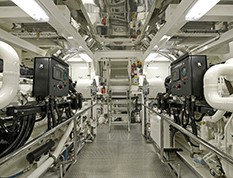
- Yacht Department Directory
- Engineering Department
About the Engineering Department
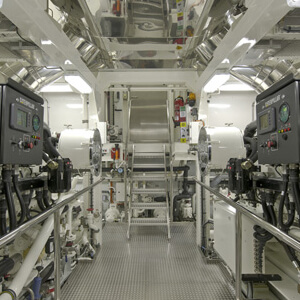
The engineering department aboard a yacht is essential to keeps things running. Working in this department requires a strong mechanical acumen, troubleshooting skills and the ability to maintain an immaculate engine room. Unlike in the commercial sector, engineers are often involved in docking procedures and guest water sport activities.
This department is responsible for the following aspects of the yacht operation:
- all engineering system operations and maintenance
- electronics & audio-visual
- air conditioning
- sanitation and environmental control
- engine room safety management (ISM)
- planned maintenance coordination (PMP)
The developmental track for a superyacht engineer is linear and involves specific certifications based on technical knowledge, in addition to experience at sea working on certain size engines. This career is suited for individuals with strong problem solving skills and that enjoy "tinkering". Junior engineers work closely with other engineers or captains to gain a basic understanding of the systems onboard. Although they may not have a license upon joining the vessel, the AEC license has minimal. Any person interested in working in the engine room in any capacity should consider investing in this basic certification.
As an engineer builds knowledge and time in the engine room, the numbers of systems they work on and gain understanding of will increase. To ensure constant progression, it is essential to accrue experience and time in the engine room, which will allow continuation of further licensing. The combination of hands-on learning from a senior engineer and technical education courses are compulsory to advance to a position as second engineer.
A second engineer is the chief engineer’s right hand and dependability is paramount. In this position, you have a good working knowledge of all yacht systems. At this level, you can complete basic maintenance and repair independently as well as effectively assist the chief on advanced projects. Your duties will also include working with outside vendors and contractors.
A chief engineer is fully accountable for the entirety of the engine room and safety aboard the yacht. The position requires leadership and strong management skills in addition to technical expertise. As the size of the yacht increases, so does the number of engineers on board, complexity of systems and scope of engineering projects that require detailed time and fiscal oversight.
Career Path
Chief engineer unlimited, chief y1 (<3000gt < 9000kw), chief y2 (<3000gt < 3000kw), chief y3 (<500gt < 3000kw), chief y4 (<200gt < 1500kw), 2nd unlimited, 2nd (<3000gt <6000kw), 2nd (<3000gt <3000kw), 2nd (<500gt <3000kw), oow engineer (meol), oow engineer (aec), electronics engineer (eto), junior engineer (unlicensed).
Cookies on GOV.UK
We use some essential cookies to make this website work.
We’d like to set additional cookies to understand how you use GOV.UK, remember your settings and improve government services.
We also use cookies set by other sites to help us deliver content from their services.
You have accepted additional cookies. You can change your cookie settings at any time.
You have rejected additional cookies. You can change your cookie settings at any time.
- Maritime and shipping
- Seafarer management, training and certification
- Ship crew training and certification
Engineering Officers and Ratings
Information on how to gain a UK CoC for Engineering/Electro-Technical Officers or Engineering Watch Rating Certificate
Application process
In line with MIN 655 , if you are applying for your first UK Certificate of Competency (CoC), you must post your application and original documents (except passport which must be an attested copy) at both NOE and CoC stages to:
Seafarer Certification 2/11 Maritime and Coastguard Agency Spring Place 105 Commercial Road Southampton SO15 1EG
For all other applications, please email your application and scanned documents to [email protected]
Please ensure your documents are included as attachments or within a .zip folder. Unfortunately, we cannot open .rar extensions or links to file-sharing services (e.g. OneDrive, Google Drive, Dropbox etc).
Fast track requests
It is unlikely we will consider expediting a NOE (including Resit) or Rating application within our service standard of 28 days, or within 14 days for all other applications.
If you have been waiting longer than this and need us to assess your application on an urgent basis, please ask your company to email [email protected] directly with your full name, date of birth and a compelling reason (including the vessel joining date).
For NOE applications, your company must also confirm to us that you meet all of the certificate requirements i.e. the only barrier to gaining the certificate is you need to sit the MCA oral exam.
For NOE resits, it is unlikely we will be able to consider a fast-track request if you’ve already had 3 attempts or more.
Booking your MCA oral exam
Information about how to book your oral exam will be emailed to you when you have met the requirements for an NOE.
Oral exam syllabuses
It is recommended that you review the relevant oral exam syllabus before sitting your MCA oral exam.
CoC requirements
If you pass your MCA oral exam, please see our guidance on the requirements for an engineering CoC application .
If you fail your MCA oral exam and wish to resit it, please email the NOE Fail to [email protected] . The fee is currently £159 and should be paid for online to prevent delays.
This process also applies if you passed your oral exam more than 3 years ago.
Additional requirements for a third MCA Oral Exam attempt (or more)
From 3 July 2023, we will not be in a position to issue your NOE resit until we have received documentary evidence that you meet all of the CoC requirements (as per section 4.2 of MIN 690 ). Please send scanned copies of these documents by email to [email protected] when you apply for your NOE resit.
If you were issued with a NOE over 5 years ago but did not sit the exam, the fee is reduced ( currently £90 ). We’ll also need to see two forms of evidence showing 6 months’ seagoing service in the last 5 years.
All applicants will need to supply sufficient ‘detailed evidence’ of their course content for a 70% match to be obtained between their qualification and the MCA’s syllabuses. In addition applicants will be required to have obtained a pass mark of at least 50% in each of the individual subjects, within their qualification, being presented for the audit.
Copies of certificates, marking transcripts and photo ID, will need to be signed by a ‘notary’ confirming the true likeness to the original.
Merchant Engineering Officer of the Watch Unlimited
For Science A and B, and Control Engineering:
- UK graduates (HNC and higher) and experienced seafarers should contact their MCA-approved nautical training centre
- non-UK graduates should contact IAMI for course exemptions only (i.e. exam exemptions are not available)
For Workshop Skills, a skills test can be used if you have workshop qualifications; please contact your MCA-approved nautical training centre .
Merchant Second/Chief Engineer Unlimited
Holders of UK/EU qualifications (HND and higher) should contact IAMI for course and exam exemptions from Naval Architecture, Applied Mechanics, Applied Heat, Electro-technology, Mathematics and Engineering, Systems & Ship’s Drawings.
Holders of non-UK/EU Engineering degrees should first contact UK ENIC for recognition and evaluation of international qualifications and skills, and then IAMI for course exemptions only (i.e. exam exemptions are not available).
University of Trinidad and Tobago (UTT)
Please email your UTT e-transcript to [email protected] for the attention of an Engineering Examiner.
Small vessels
Please do not apply for exemptions before obtaining an action plan from a MCA-approved Small Vessel Engineering training provider .
For General Engineering Science I & II, 2 weeks’ Workshop Skills (also known as Yacht Skills Test) and AEC1, please contact IAMI .
There is generally no exemption available for AEC2, however, MCA/MNTB-approved FD/SPD, HND or HNC holders should email [email protected] the course completion letter.
For finding a match to the AMERC Electronic Principles course, you will need to hold the minimum of a Higher National Certificate (Academic level 4/Scotland level 7) to be considered for the IAMI exemption service .
For finding a match to the management level Electrotechnology SQA qualification, you will need to hold the minimum of a Higher National Diploma (Academic level 5/Scotland level 8) to be considered for the IAMI exemption service .
Merchant Navy
- MSF 4275 - Application form for an oral examination leading to the issue of a certificate of competency (STCW) engineer officers in the merchant navy
For guidance on the certificate requirements, please see MSN 1857 Amendment 1
- Engineer Officer of the Watch Unlimited III/1: sections 3.2, 3.3 and 3.4
- Second Engineer Unlimited III/2: section 3.5
- Chief Engineer Unlimited III/2: section 3.6
- To obtain both motor and steam endorsements: Annex A
- MEOL (serve as Chief Engineer on motorships <750 kW in UK near coastal area): section 10.2
Holders of non-UK CoCs
- To obtain UK EOOW III/1: section 3.3 of MSN 1857 Amendment 1
- To obtain UK Second Engineer III/2: sections 9.3 and 9.3.1
- To obtain UK Chief Engineer III/2: sections 9.3 and 9.3.2
Please note your non-UK CoC must be valid upon application and remain valid until we print your CoC.
Common queries
- You must pass EK General and Motor and/or Steam together. If you fail one, you must retake both.
- You cannot sit SQA management exams outside the UK.
Royal Navy conversion to Merchant Navy
We have a Memorandum of Understanding (MOU) with the Royal Navy, giving a route to Merchant STCW Certification based on the education and training, as well as experience, gained whilst in the Navy.
For those in the surface fleet, please see the Engineering Royal Naval Conversion Flow Chart . More information can be obtained directly from the Royal Navy (contact details on request).
If you are a Submariner, we are currently in discussions regarding routes taking into account your education, training and experience. We can raise your case directly with our examiner for review if needed; please email [email protected] with your Rank, service history and any relevant education and training.
There is currently no equivalent MOU for other former UK military personnel.
- MSF 4900 - Application form for an oral examination leading to the issue of an (STCW) engineer officer small vessel certificate of competency
To enter the Small Vessel structure, please familiarise yourself with MSN 1904 and MIN 642 and contact a MCA-approved Small Vessel Engineering training provider to enrol and obtain an action plan.
Please note that there are currently no training providers offering the diploma route outlined in section 4.3 of MSN 1904 .
Conversions
Conversion routes for UK CoC holders can be found in section 7 of MIN 642 . If you hold a superior capacity on your CoC (e.g. EOOW Unlimited III/1), this will carry over to your new CoC.
All conversion routes require 6 months’ seagoing service in the last 5 years (as per section 11.1 of MSN 1904 ).
For conversions N1 and N2 (Merchant EOOW to SV Chief Eng), you do not need HELM (Operational) unless you qualified as an EOOW before September 2013.
Foreign conversions
Conversion routes for those holding a CoC from a country on our Flag State Endorsement (FSE) List , please see conversions X1 to X8 .
Commercial and private yachts (over 24m)
The yacht structure has closed - no further NOEs will be issued (except resits).
The MCA will continue to revalidate yacht CoCs. To convert/upgrade to a small vessel CoC, please see section 7 of MIN 642 :
- Y4 Chief Engineer III/3 <200 GT and <1,500 kW: Conversions A1, A2 or A3
- Y3 Chief Engineer III/3 <500 GT and <3,000 kW: Conversions B or C
- Y2 Chief Engineer III/3 <3,000 GT and <3,000 kW: Conversion D
- Y1 Chief Engineer III/2 <3,000 GT and <9,000 kW: Conversion E
Once you have converted to a small vessel CoC, progression will be through MSN 1904 .
The certificate requirements for the old yacht structure can be found in MSN 1859 Amendment 1
Electro-technical officer (ETO)
- MSF 4259 - Application form for an oral exam leading to the issue of an STCW electro technical officer (ETO) certificates of competency (CoC)
You should follow either:
- 3.3 of MSN 1860 Amendment 1 (experienced seafarer) and get an action plan, or;
- 3.2 of MSN 1860 Amendment 1 and seek support for an ETO cadetship.
In all cases, please contact a MCA-approved Nautical College .
Senior Electro-Technical Officer (SETO)
SETO is not recognised by STCW and consequently will not appear on a Safe Manning Document. To obtain SETO by written examination, please contact IAMI for exam details.
Watch rating certificate
- MSF 4371 - Application form for MCA issued watch rating certificate (engine room or electro-technical)
Electro-technical
For guidance on Electro-technical Rating III/7, please see section 5 of the form (above).
Engine room
For guidance on Engine Room Watch Rating Certificate III/4, please see MSN 1863 Amendment 1 , in particular section 2.2 (sea service reduction).
If you are unable to complete the steam tasks on board, you have a few options:
- You could complete the boiler tasks at a college which has a simulator course covering the relevant items, or;
- Your company may be able to arrange for the tasks to be completed at a shore based location (e.g. some refineries will have boiler systems identical to those found on vessels), or;
- We can issue a limited certificate (“not valid on ships with steam plant and oil/gas fired boiler”).
Fishing CoC
Fishing vessels over 750kW must carry two engineers: a Chief Engineer holding a Fishing Class 1 and a Second Engineer holding a Fishing Class 2. This is regardless of the vessel’s length, tonnage or area of operation.
For the certificate requirements and how to apply, please see: Guidance for obtaining UK MCA engineering fishing certificates of competency .
New tanker endorsements
- MSF 4210 - Application form for a tanker endorsement on a UK CoC
Sea service/training/occupation must be within the last 5 years :
Basic/Operational level
- Relevant MCA-approved Basic Tanker Training, and;
- MCA-approved Tanker Fire Fighting.
If you already hold Advanced Oil or Advanced Chemical tanker endorsement on your UK CoC, you automatically qualify for Basic Oil and Chemical endorsement (i.e. no training required).
Advanced/Management level
- You must meet the basic level requirements (as above) unless you are exempt because you hold the corresponding basic endorsement on your UK CoC, or you are applying for Advanced Oil/Chemical and hold the opposite Advanced Oil/Chemical endorsement on your UK CoC, and;
- Relevant MCA-approved Advanced Tanker Training, and;
- Two forms of evidence (e.g. discharge book and dangerous cargo testimonials) showing 90 days’ seagoing service on board a tanker carrying the relevant cargo.
Lapsed endorsements
If you previously held tanker endorsement(s) on your UK CoC but they were removed, you will still need to complete MSF 4210 and pay the fee, however, the requirements are:
- 90 days’ seagoing service on board a tanker carrying the relevant cargo, or;
- Relevant MCA-approved tanker training certificate(s), or;
- 30 months’ occupation in a role involving loading/unloading dangerous cargo.
- MSF 4350 - Application form for an IGF Certificate of Proficiency
For guidance on the requirements, please see MSN 1866 Amendment 1 :
- Basic IGF - sections 9 and 10
- Advanced IGF - sections 9 and 11
For training for service on ships using fuels covered within the IGF Code, please see our list of MCA-approved training providers .
Given ordinary sea service testimonials do not cover all of the information we need, please consider using our IGF specific specimen report of service .
Limitation removal
To remove High Voltage, Davit, Navigational Systems or Radio Equipment limitations, please apply using form MSF 3901 .
You can also use this form to change your name.
CoC replacement
You can apply for a replacement using form MSF 4299 . If your CoC was stolen, you must report it to the Police.
CoC revalidation
CoCs are valid for 5 years. Fishing CoCs, MEOLs and Rating Certificates do not need to be revalidated.
Please see our detailed guidance on how to revalidate a UK CoC .
PSSR, EFA and MFA
Your UK CoC is proof that you have met the requirements for PSSR (A-VI/1-4), EFA (A-VI/1-3) and MFA (A-VI/4-1). There’s also no requirement to update these three courses. If an employer is querying this, please refer them to sections 5.1 and 5.2 of MIN 643 .
Pre-August 1998 grandfather rights
If a seafarer had 6 months sea service prior to August 1998, they were not required to complete PSSR or EFA originally (as per section 2.4 of MGN 97 ).
‘First Aid at Sea’ certificate issued before August 1998 should be considered as equivalent to MFA (A-VI/4-1) as per MGN 147 .
Added advice on small vessel conversions from non-UK CoCs
'NOE resits' section - added: Additional requirements for third attempt (or more) advice in line with section 4.2 of MIN 690.
Updated information for booking an oral exam.
Updated links to new M notices
Added section on exemptions
First published.
Related content
Is this page useful.
- Yes this page is useful
- No this page is not useful
Help us improve GOV.UK
Don’t include personal or financial information like your National Insurance number or credit card details.
To help us improve GOV.UK, we’d like to know more about your visit today. We’ll send you a link to a feedback form. It will take only 2 minutes to fill in. Don’t worry we won’t send you spam or share your email address with anyone.

Yacht Interior
Residential interior, project management, yacht engineering uk london, electrical design & integration.
Yacht engineering in the UK, London, Heseltine Design Ltd.
Lighting Fitting & Arrangement
Experience the allure of the night sky and the magic of onboard entertainment through our lighting and AV/IT design and integration. Every lighting fixture is a brushstroke that paints the vessel’s silhouette against the dark canvas of the sea. Audiovisual and information technology blend seamlessly, enriching your yacht experience with immersive soundscapes and connectivity.

Speaker & Subwoofer Arrangement
Lighting scenes.

Yacht Exterior
Yacht designers uk london.
We look forward to connecting with you and turning your visions into reality. Feel free to reach out to us with your ideas – we’re here to listen and create.
Site Credits: Imprint × Wired = Author Studios
- +44 151 632 4000 [email protected]
- 86a Market Street, Hoylake Wirral, CH47 3BD, UK
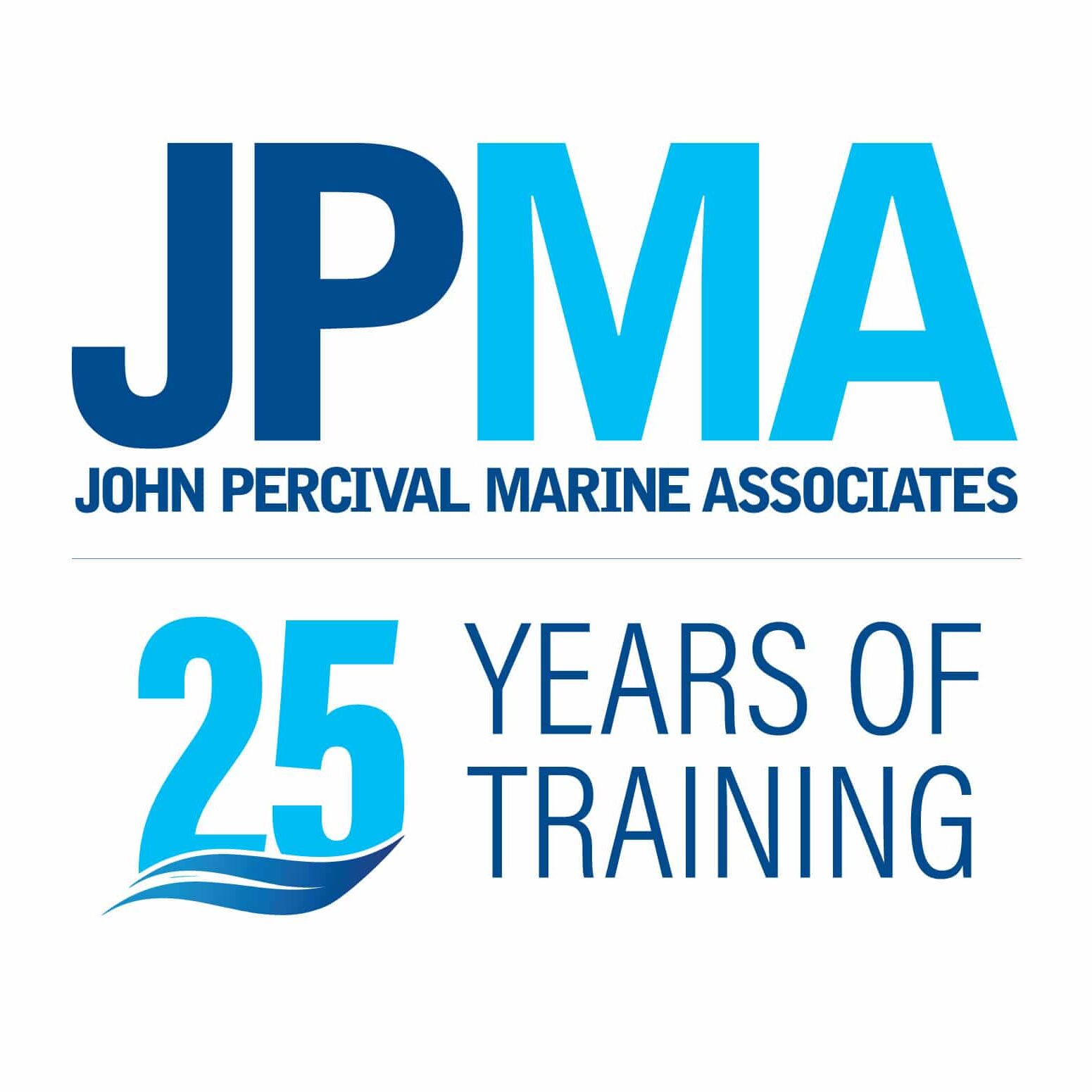
JPMA & Hoylake Sailing School
(john percival marine associates), small vessel marine engine operator licence (meol(sv)).
This qualification will allow you to serve as Marine Engine Operator on Small Vessels with a propulsion power of between 200kW and 750kW, where STCW requirements do not apply. In order to gain an MEOL(SV), you will need to do some classroom training, some onboard and sea service, and finally an oral exam.
The service requirements for MEOL(SV) are the same as the initial entry requirements for the SV EOOW CoC (there are written modules, a Training Record Book and more service required in order to complete the SV EOOW). The MEOL is therefore accepted as evidence of meeting the requirements to register for the Experienced Seafarer route for the SV EOOW CoC.
The courses you must undertake for MEOL(SV) are:
STCW Basic Safety Week (PST or RYA Basic Sea Survival/PSSR/Elementary First Aid/Basic Fire Fighting)
CPSC&RB/Advanced Sea Survival certificate
- Advanced Fire Fighting
Proficiency in Medical First Aid Aboard Ship
Approved Engine Course I & II (AEC I & II)
ENG1 Medical certificate
(if you are yet to receive any of these certificates, you can still apply for the NoE, but you will need to submit the certificates to the MCA after you have undertaken your oral exam)
Updating Training for CoC applications – anyone serving on board ship, who holds any of the following certificates must, as of 1st January 2017, have documentary evidence of either completing the training course or updating training within the last 5 years:
- Personal Survival Techniques
- Proficiency in Survival Craft & Rescue Boats (CPSC & RB)
- Proficiency in Fast Rescue Boats (PFRB)
- Basic Fire Fighting
Required Service:
You need to have 36 months onboard service as a dual purpose deckhand/engineer, responsible for the maintenance and servicing of a vessel of 200kW or more in propulsion power, of which at least 6 months must be actual sea service in the engineering department;
24 months onboard service as a Small Vessel engineer responsible for system maintenance on vessels of 200kW or more in propulsion power, of which at least 6 months must be actual sea service .
Information about Service:
The qualifying service must be performed in the Engineering department. In the case of a dual role Engine⁄Deck candidate, half of the service is counted.
Onboard service is counted as the time spent on the vessel and excludes leave and other non-working time. You are able to claim 3 months of the required sea service for service in shipyards, repair berth, anchorage and at lay-up. Any yard service needs to be detailed in a report verified by the Master/Chief Engineer/Company.
A minimum of 4 hours of working duty in 24 hours would count as 1 full day of actual service.
At least 6 months of the qualifying sea service must have been performed within the 5 years immediately preceding the date your application is received by the MCA.
A month is defined as a calendar month or 30 days if made up of periods less than 1 month.
Sea service may be performed on vessels of any flag.
Sea Service Verification Process for Yacht Engineers – please click here to read about new regulations.
Applying for an NoE:
To do the final oral exam for MEOL (SV), you will need a Notice of Eligibility. This document is issued once the MCA have assessed your eligibility, and an oral exam cannot be booked until the NoE is issued.
Your service needs to be proved with 2 forms of evidence for each vessel on which you are claiming service time. Usually a Testimonial and a Certificate of Discharge. If you have a discharge book or PYA SRB, this can be used with a testimonial for each vessel.
This is all laid out in MSN 1904 & MIN 642 (there are different types of Engineer testimonial, depending on what type of vessel you are on. The Yacht testimonial can be found as an annex of MIN 642. The Certificate of Discharge and other types of Testimonial can be found as an annex of MSN 1904)
Update to Electronic NoE application process & online oral exams – the MCA have updated the application process to allow for applications to be made online using the submission of electronic documents. If this is your first UK/MCA qualification, you will still need to post your application.
You must send a form of ID with your application. You can send a copy of your passport, signed by your Captain and with their CoC number noted, but you can also send any form of National ID – birth certificate or Discharge Book are usually easier to cope without!
You will need to download the application form . You must complete the form and send all of your original certificates and testimonials to the MCA. The NoE will be processed in about 28 days. Once the NoE is issued you are deemed eligible to take the oral exam.
JPMA offers oral preparation courses for the MEOL(SV) oral exam. Click here for details.
We've detected unusual activity from your computer network
To continue, please click the box below to let us know you're not a robot.
Why did this happen?
Please make sure your browser supports JavaScript and cookies and that you are not blocking them from loading. For more information you can review our Terms of Service and Cookie Policy .
For inquiries related to this message please contact our support team and provide the reference ID below.
This is the announcement bar for Poornima to test the Close Button. It will expire May 31 2024.
- Pre-Cruise FAQ
- Onboard FAQ
- Post-Cruise FAQ
- Cruisetours FAQ
- Special Offers Sign Up
- Cruise Deals
You have been logged out
Your window will update in 5 secs
Award-Winning Actress & Performer Hannah Waddingham to Serve as Godmother of Stunning Sun Princess
Newest “love boat” to be officially christened in star-studded ceremony in barcelona on april 23, 2024.
By downloading this image you agree to the Princess asset use terms and conditions
FT. LAUDERDALE, Fla. , (April 8, 2024) - Award-winning actress and performer Hannah Waddingham will serve the time-honored, maritime tradition as the official Godmother of Princess Cruises’ newest “Love Boat” Sun Princess. The star-studded naming ceremony will take place at the Port of Barcelona on April 23, 2024.
Waddingham joins an esteemed group who have served as Godparent to Princess ships: Diana, Princess of Wales (Royal Princess, 1984), Kate Middleton, Princess of Wales (Royal Princess, 2013); Audrey Hepburn (Star Princess, 1989); Sophia Loren (Crown Princess, 1990); Martha Stewart (Crown Princess, 2006), among many notable celebrities.
British actress and singer, Waddingham is beloved for her role as Rebecca Welton in Apple TV+’s “Ted Lasso,” in which her performance garnered a Primetime Emmy, Critics Choice Television Award and Screen Actors Guild Award, as well as two individual Golden Globe and Screen Actors Guild nominations. She will next be seen in the highly anticipated Universal film “The Fall Guy” opposite Ryan Gosling and Emily Blunt in theaters on May 3, 2024. Earlier this year, Waddingham earned a BAFTA TV Award nomination for her own Apple TV+ holiday special “Hannah Waddingham: Home for Christmas.” Waddingham made her worldwide hosting debut in April 2023 at The Olivier Awards (she returns as host for the 2024 ceremony on April 14) followed swiftly by the BBC Eurovision Song Contest 2023, for which she has gained her second BAFTA TV nomination and won The Royal Television Society award for “Best Entertainment Performance” in 2024. Her upcoming films include Sony Animation film “Garfield” out May 24, 2024 and in 2025 “Mission: Impossible – Dead Reckoning Part Two.”
“We’re delighted to welcome the illuminous and elegant Hannah Waddingham to serve as Godmother for our sensational new Sun Princess,” said John Padgett, Princess Cruises president. “Just like Sun Princess, she exudes sophistication, beauty and wonderment through her inspiring work as a talented and award-winning actress and performer. We’re truly honored Hannah will officially name our most impressive, luxurious and stunning Love Boat ever created, and join an esteemed group of Princess Godparents including members of the Royal family.”
The new 177,882-ton, 4,300-guest Sun Princess introduces an innovative new ship platform designed exclusively for the world’s most iconic cruise brand. A true engineering marvel, Sun Princess officially started the inaugural cruise season on February 28, 2024, and currently is sailing a series of Mediterranean voyages before debuting in Ft. Lauderdale, Fla., in October for the ship’s first Caribbean season.
Princess ships are renowned for offering spacious venues and Sun Princess takes that to the next level. Sun Princess debuts new eye-catching experience venues including The Dome, a groundbreaking geodesic, glass-enclosed structure at the top of the ship inspired by the terraces of Santorini. The outward and suspended Sphere Atrium, the namesake of this new class of ship, takes the central Piazza hub of the ship into a new dimension. Here guests are enveloped with expansive ocean views and an open concept, inspired to deliver the desired lifestyle of relaxed indoor and outdoor living.
Sun Princess offers an extraordinary cruise experience with not-to-be-missed culinary, entertainment and luxury accommodations, including:
The Greatest Foodie Destination at Sea
Sun Princess serves up 30 inviting restaurant and bar venues with an unprecedented collection of celebrity collaborators, high-end ingredients and culinary experiences from:
Spellbound by Magic Castle : Blending the captivating world of magic with the art of culinary and mixology to create an extraordinary, innovative and immersive dining experience, steeped in magic and adventure.
Makoto Ocean : Reshaping traditional sushi with a creative approach, the Master of Edomae-style sushi, Chef Makoto Okuwa brings his 25 years of experience with a new concept crafting playful, exquisitely presented dishes paying tribute to Japanese traditions.
Love by Britto : A high-end boutique restaurant with the most romantic view from the ship celebrating love and art from world-renowned artist Romero Britto.
The Butcher’s Block by Dario : A new specialty pop-up restaurant from the world’s most famous butcher Dario Cecchini, guests enjoy perfectly prepared beef and steak, including Cecchini’s signature cuts.
The Catch by Rudi : An exceptional dinner concept from renowned Chef Rudi Sodamin showcasing delectable treasures from the sea.
Good Spirits at Sea with Rob Floyd : Destination-inspired, one-of-a-kind cocktail creations from celebrity mixologist Rob Floyd.
Debuting a three-story dining room with endless aft views, inaugural menus have been created in collaboration with the Culinary Institute of America. While retaining what guests love about Princess, the ship also features favorites like Crown Grill, Sabatini’s and Crooners with new design elements to impress.
Showstopping Entertainment in Technically Advanced Spaces
The Princess Arena is the most technologically advanced theater at sea, offering showstopping and original productions including performances in the round. At night, The Dome astonishes audiences with acrobatic Cirque Éloize performances while the Piazza dazzles with a retractable stage and immersive Champagne Waterfall.
Elevated & Welcoming Areas & Accommodations
Sun Princess also features the cruise line’s largest casino, two-story Lotus Spa, and an expanded retail environment with more than 200 premium brands. The retail space also includes several firsts a sea including an upscale showroom dedicated to luxury horology showcasing TAG Heuer and Breitling and more than 25 new brands available to cruise guests like Italian handbag brand, Pinko and athleisure favorites Beyond Yoga and Varley.
The first-ever family activity zone, Park19, offers multi-generational fun from the top deck. Within decks 19, 20 and 21, guests can experience everything from the Sea Breeze, a glider ride that offers panoramic views of the ocean and breathtaking ports of call to the Coastal Climb, an engaging climbing structure where guests can take in the gorgeous views.
With diverse accommodations to suit every preference and more than 1,500 cabins with balcony views, Sun Princess’ re-imagined staterooms include exceptional suites and new Cabana Mini-Suites with extra space for secluded outdoor relaxation.
Rooted in sustainability, Sun Princess is the first LNG (liquefied natural gas) vessel for the cruise line, reducing greenhouse gas emissions and features ingenious energy recovery systems for eco-conscious cruising.
Sun Princess cruises to the Mediterranean and the Caribbean are on sale now. More ship details can be found at www.princess.com/sunprincess .
Additional Sun Princess assets can be found here .
More information about Princess Cruises is available through a professional travel advisor, by calling 1-800-Princess (1-800-774-6237) or by visiting www.princess.com .
Media Contacts
Contact information for members of the media
Negin Kamali, +1 661-753-1539, [email protected]
Briana Latter, +1 661-753-1538, [email protected]
About Princess Cruises
Princess Cruises is The Love Boat, the world’s most iconic cruise brand that delivers dream vacations to millions of guests every year in the most sought-after destinations on the largest ships that offer elite service personalization and simplicity customary of small, yacht-class ships. Well-appointed staterooms, world class dining, grand performances, award-winning casinos and entertainment, luxurious spas, imaginative experiences and boundless activities blend with exclusive Princess MedallionClass service to create meaningful connections and unforgettable moments in the most incredible settings in the world - the Caribbean, Alaska, Panama Canal, Mexican Riviera, Europe, South America, Australia/New Zealand, the South Pacific, Hawaii, Asia, Canada/New England, Antarctica, and World Cruises. The company is part of Carnival Corporation & plc (NYSE/LSE:CCL; NYSE:CUK).
Additional media information is available at princess.com/news
Not a member of the media?
Contact us at: 1-800-PRINCESS (1-800-774-6237) or 1-661-753-0000
More contact information is available on our Contact Us page

IMAGES
VIDEO
COMMENTS
For full details of UK requirements for engineer officers on Small Vessels please see MIN 524 (M+F). Expert yacht engineering training Delivered by qualified yacht engineers and taught in our purpose-built training workshops, our professional Yacht Engineering courses give you the skills and knowledge you need to build an engineering career at sea.
3. Hold a valid ENG1 Medical or ENG1 Medical Equivalent Certificate. 4. Pass the MCA oral examination for Second Engineer Officers on Small Vessels less than 9000 kW, less than 3000 GT, unlimited area, III/2 (syllabus available online, go to www.gov.uk and search "Small Vessel Oral Examination Syllabus")
On this Yacht and High-performance Craft engineering MSc degree you'll specialise in the analysis, design and performance of yachts, small craft and high-performance vessels. You'll also gain an understanding of the fixed and offshore structures that help them to function. You'll graduate with the specialist skills in maritime engineering ...
There are two common routes for becoming a superyacht engineer. Firstly, you can enroll in the courses set out by the Maritime and Coastguard Agency (MCA) and work your way through them from the bottom up. These include the Approved Engine Course (AEC), the Marine Engine Operator License (MEOL), and the Yacht 4, 3, 2 and 1 qualifications (with ...
Structural engineering. Lateral specialises in the design of structures in steel, aluminium and composite. Through our teams 60 years' experience in developing structural designs for yachts and specialised vessels we utilise an extensive knowledge base to deliver practical and pragmatic designs that are fit for purpose, efficient to build and with excellent attention to detail.
Skills needed to be a successful Yacht Engineer: The role requires a keen eye for planning and organisation. Planned maintenance (carrying out preventative and explorative maintenance before failures occur) is a very important aspect in modern marine engineering. Skills in project management, resource allocation and time management are very ...
The UK offers extraordinary capabilities in the superyacht sector, from the creation and refit of some of the world's leading luxury yachts and innovative development and support of high quality equipment, through to key services that owners and captains can trust. Great Britain's impressive superyacht capability is advocated by Superyacht ...
Converting your current Engineering CoC to the Small Vessel route: For those who already hold a UK Engineering CoC, there are conversions into the SV route, listed in MIN 642.Starting with Conversion A1 (converting Y4 to Small Vessel EOOW <3000GT & <9000kW) going all the way through to Conversion R (converting a Merchant Navy 2 nd Engineer Unlimited to Small Vessel Chief Engineer <3000GT ...
Students on this modern course will study the engineering science underlying great design, along with the fundamental principles of naval architecture, construction methods and high-tech fibre reinforced composite materials. Planning and management processes for the efficient, effective production of racing sailing yachts, RIBs, motor yachts ...
Yacht Engineering Skills. ... The UK has a strong pedigree in yacht design and the UK leisure yacht and small commercial marine markets generate direct revenues of 3.97bn, according to British Marine, the membership organisation for these industries. The industry is supported by over 38,000 jobs across a variety of roles, with over 10,000 new ...
Yacht design requires a range of technical and engineering specialist skills, as well as a good grasp of hydrodynamics and mathematics. A yacht design degree offers the ideal combination of academic and hands-on technical skills; alternative routes into the role might be to undertake an apprenticeship with a design firm, or to take an entry-level position in a design firm and work your way up ...
22 Universities in the UK offering Marine Engineering degrees and courses. Plan your studies abroad now. You are currently browsing our site with content tailored to students in your country
Small Vessel EOOW (Limited to Yachts) CoC. The MCA has introduced an Engineer Officer of the Watch (EOOW) <9,000 kW/<3,000 GT Small Vessel Engineering CoC that is Restricted to Yachts, to provide a pathway for experienced engineers working within the Yacht sector to progress through the SV Engineering structure, without having to obtain the ...
Superyacht Training Academy. Cape Town, South Africa. The Superyacht Training Academy, Cape Town, is an elite maritime Institute providing Internationally recognised training for professional yacht crew. We pride ourselves in releasing crew into the Superyacht industry who are confident, competent, and responsible.
In the final year of Oyster's marine engineering apprenticeships programme, you will cover the installation of a sea inlet manifold and complete gas systems. You will also assist the team with the complete commissioning process of a boat, making sure every element is fitted and set up to perfection, in readiness for the handover to its new owner.
MCA Chief Engineer Yacht, MEOL and AEC Requirements for Working in the UK Registered Large Yachts (over 24m) The Chief Engineer Yacht is in charge of the engineering department of a large yacht (Superyacht) and manages the Engineers, Electricians and ETO and has overall responsibility for the engineering department. A chief engineer is educated to degree level and hold any other qualifications ...
Marine and yacht engineering is a complex and multi-faceted field that demands expertise in various disciplines. Through their contributions, marine and yacht engineers play a vital role in shaping the maritime industry's future, striving for technological advancements, operational excellence, and sustainability.
The engineering department aboard a yacht is essential to keeps things running. Working in this department requires a strong mechanical acumen, troubleshooting skills and the ability to maintain an immaculate engine room. Unlike in the commercial sector, engineers are often involved in docking procedures and guest water sport activities.
Marine Engineer (Pleasure Vessels) Ernest Gordon Recruitment Limited 4.7. Great Yarmouth. £35,000 - £40,000 + Bonus + Relocation Assistance + Flexible Working + Excellent OT Rates + Training + Progression + Company Benefits. Posted 12 days ago.
Marine Engineer (Pleasure Vessels) New. Ernest Gordon Recruitment Limited 4.7. Great Yarmouth. £35,000 - £40,000 + Bonus + Relocation Assistance + Flexible Working + Excellent OT Rates + Training + Progression + Company Benefits. Posted 6 days ago.
Maritime and Coastguard Agency. Spring Place. 105 Commercial Road. Southampton. SO15 1EG. For all other applications, please email your application and scanned documents to [email protected] ...
Yacht Engineering UK London Lighting Fitting & Arrangement. Experience the allure of the night sky and the magic of onboard entertainment through our lighting and AV/IT design and integration. Every lighting fixture is a brushstroke that paints the vessel's silhouette against the dark canvas of the sea. Audiovisual and information technology ...
The Yacht testimonial can be found as an annex of MIN 642. The Certificate of Discharge and other types of Testimonial can be found as an annex of MSN 1904) Update to Electronic NoE application process & online oral exams - the MCA have updated the application process to allow for applications to be made online using the submission of ...
Discover the world's top universities for Engineering & Technology 2023. Explore the QS World University Rankings by Subject 2023 in various disciplines. ... Discover which universities in the UK come out on top in the QS World University Rankings. By Holly Hemmings Mar 12, 2024 1,943,488 2k
The UK economy's rebound from recession appeared to be gathering momentum in March, with a key industry survey showing growth across all three main sectors for the first time in almost two years.
FT. LAUDERDALE, Fla., (April 8, 2024) - Award-winning actress and performer Hannah Waddingham will serve the time-honored, maritime tradition as the official Godmother of Princess Cruises' newest "Love Boat" Sun Princess.The star-studded naming ceremony will take place at the Port of Barcelona on April 23, 2024. Waddingham joins an esteemed group who have served as Godparent to Princess ...
The UK could become the first country to use a laser weapon in a real war. They plan to deploy a laser-directed energy weapon (LDEW) named DragonFire in Ukraine to shoot down Russian drones.